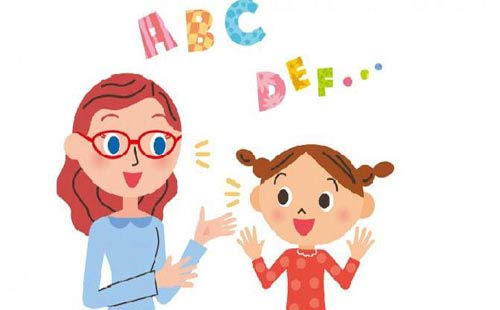最全常用日常英语口语900句学习资料,附加词汇分析
来源:本站原创发布时间:2017-12-26 13:33:38
本文是独家最全的日常英语口语900句资料,包含重点日常英语的词汇分析,这些日常英语口语900句是以英语基本对话的形式的,希望大家能利用好这些常用英语口语句子。
之前分享的日常英语口语900句都是以句子的形式,今天分享的日常英语口语900句是以对话的形式,篇幅很长,我们也花了很长时间来整理,只是希望能够给大家最好的英语口语学习资料。而且通过日常英语基本对话的方式,大家可以学会更好运用这些常用英语口语句子。好了,话不多说了,今天的日常英语口语900句资料很全,快来看吧。

1.Do you meet your target? (你的目标完成了吗?)
A: Do you meet your target this month?你这个月的目标完成了吗?
B: Yes, thanks God, I can meet the target. But I wonder with Janice. She never meets the target.谢天谢地,完成了。但是我对珍妮丝感到好奇。她从来没有达到过指标。
A: Janice? She is still very young. I don’t think that she can work here for a long time.珍妮丝?她还是太年轻了。我觉得她不会在这里工作太久。
B: Why? By the way, how old is she actually?为什么?顺便问一下,她到底多大啦?
A: She is working, right? so she must be mature. She’s already 24 years old.她已经在工作了,是吧?那她肯定是个成熟的人了。她已经24岁了。
B: But she is still childish. She is also often sensitive.但她还是很孩子气,而且常常很敏感。
A: Age has nothing to do with maturity. She should realise that she works.年纪和成熟并没有什么关系。她应该意识到她工作了。
B: Perhaps she doesn’t like the job.也许她不喜欢这份工作。
A: If she doesn’t like the job, she must find another job.如果她不喜欢这份工作,她肯定找了另一份工作。
B: She’s trying to get another job, but mostly they offered small salary.她正在试着找另一份工作,但通常对方给的薪水都很低。
A: Whatever the job, if she never does the job by heart, it won’t be an enjoyable job. Working is not just about the money, is it?不管是什么工作,如果她不用心做的话,她是没办法乐在其中的。工作不是只和钱挂钩的,不是吗?
B: I agree with you.我同意你的说法。
tips:
①meet one’s target 意为“达到某人的目标/指标”。相当于achieve/accomplish/realize/reach one’s goal。另外,“树立目标”我们可以说set up/establish a goal。
②small salary指“薪水低”。有意思的是,英文中表示薪水“低“我们一般不用low,而是用small来形容。形容薪水我们还可以用以下这些形容词:decent/handsome salary(可观的薪水),humble/ meagre/slender salary(微薄的薪水),expected salary(期望的薪水)。
③by heart指“用心地“,在这里相当于一个副词。还可以与learn, know, get 等动词搭配,表示“默记,牢记”。We had better learn by heart as many sentence patterns as possible.(我们最好尽可能多背句型。)
2. Why did he get angry to you? 他为什么生你的气?
A: You look upset, what’s wrong with you?你看起来不太开心。你怎么啦?
B: Yes, I’m unwell today.是的。我今天不太舒服。
A: Please don’t lie to me. You told me that you went jogging this morning, didn’t you? Please be honest to me. Who knows I can help you.别骗我。你跟我说过你今天早上还去慢跑了,不是吗?跟我说实话吧,或许我可以帮你呢。
B: Actually Mr. Scott got angry to me just now.其实是因为刚刚斯科特先生对我发火了。
A: Why did he get angry to you?他为什么对你发火呀?
B: I have done a fatal mistake.我犯了个大错。
A: What’s that?什么错?
B: I had sent the wrong goods to customer so that we lost millions rupiahs.我给顾客送错了货,害得我们损失了几百万卢比。
A: How come? You’re really careless! You should be more careful in doing thing.怎么会这样呢?你太大意了。你做事应该更认真一些。
B: I made mistake in putting the address on the package. I didn’t do it intentionally. I feel guilty, and I have apologized.我在包装上填地址的时候出了错。我不是有意的。我很内疚,也道了歉。
A: Yes I know it. But it’s useless to regret thing has been done. Don’t make any mistakes again.嗯,我知道。后悔已经发生的事情是没有意义的。不要再犯错了。
B: Alright, I think you right. I promise I won’t do it again.是的,你说得对。我保证不再犯这样的错误了。
tips:
①What’s wrong with sb? 是问候语的一种,通常用来询问对方“怎么了,发生了什么事”。要表达类似的意思还可以用What’s the matter with you?/What happened to you?/What’s come over to you?/What’s going on?等等。更口语化一点的表达是What’s up?(咋啦?)
②How come? 表示“怎么回事,怎么搞的,怎么会这样?” 用法相当于why。后面可以接句子也可以不接。例如:How come we never know what’s going on? (怎么我们一点都不知道发生了什么?)
③it’s useless to do sth. “做某事毫无意义/用处“,相当于It makes no sense to do sth./There is no point in doing sth.
3.Have you filled out the withdrawal slip? 你填了取款单吗?
Customer: Can you help me? I want to take some money out.你能帮我吗?我想取些钱出来。
Banker: Surely, Sir. Have you filled out the withdrawal slip?当然了,先生。你填了取款单吗?
Customer: Yes I have.填了。
Banker: How much would you make a withdrawal, Sir?你想取多少钱呢,先生?
Customer: Rp. 3.500.000 please.3500卢比。
Banker: Which account would you make a withdrawal from?你从哪个账户取?
Customer: I want to take out from my checking account, please.我想从我的活期存款账户取。
Banker: Alright, I will set up your transaction. Please sign right here, Sir.好的,我会帮你办理这项业务。请在这里签字。
Customer: How long is the process?手续大概要多久?
Banker: Just a few minutes Sir. What else can I help, Sir?几分钟就好,先生。我还有什么能帮你的吗?
Customer: Nothing. Thank you for helping me.没有了。谢谢你的帮助。
Banker: Please don’t mention it, Sir. Thank you.不客气,先生。
tips:
①withdrawal slip,指在银行柜台取款时要填的“取款单”。slip 原意为“纸条”。
②checking account,指的是“活期存款账户”,与之相对的是time deposit account “定期存款账户“。
③set up transaction,transaction多指“交易“。但在银行业中,它指的是”业务“。因此,该短语意为”办理业务“。
4.How much is the initial deposit? 起存金额是多少?
Banker: Good morning Ma’am, how may I help you?早上好,女士,需要帮忙吗?
Customer: I want to open an account.我想开户。
Banker: Alright Ma’am, what account would you like to have?好的,你想开什么类型的账户?
Customer: Savings account, please?储蓄账户,可以吗?
Banker: Would you please fill out this application first?你能先填写下这张申请表吗?
Customer: Sure. Here it is.当然。给你。
Banker: May I have your copy of ID, please?能给我你的身份证复印件吗?
Customer: Sure. How much is the initial deposit?可以,起存金额是多少呢?
Banker: Rp. 100.000 Ma’am. And you will also get an ATM card.100卢比。然后你会拿到一张银行卡。
Customer: Alright, I will put Rp. 500.000 in my account.好的,我放500卢比到我的账户。
Banker: Thank you Ma’am. Could you please sign on this line?谢谢,你能在这一栏签字吗?
Customer: Sure. Thank you.好的,谢谢。
Banker: You’re welcome. Thank you for banking with us, Ma’am.不客气女士,感谢你来我们银行办理业务。
tips:
①initial deposit指的是“起存金额,开户金额”,在银行开户后需存入一定的金额。
②ATM card, ATM的全称为Automatic Teller Machine,意为“自动提款机”。
③Thank you for banking with us.值得一提的是句中的bank为动词,表示“办理业务”。
5.Don't Forget to Drop Me a Line! 不要忘了给我写封信
Adriana: I heard you're moving to New York.我挺说你要搬到纽约啦?
Ryan: Yes. I've got an offer in upstate New York.是的,我在上纽约州得到了一份工作。
Adriana: Oh, that's great! But I'm going to miss you.噢,太好了。我会想你的。
Ryan: Me, too. Let's keep in touch.我也是。我们保持联系吧。
Adriana: Yeah. Don't forget to drop me a line when you settle down.好。等你安顿下来了不要忘了给我写封信。
Ryan: Trust me. I won't. I'll keep you posted.相信我,我会给你写信的。我会随时告诉你发生了什么。
Adriana: You have my address?你有我的地址么?
Ryan: Well, I have your e-mail address.我有你的邮件地址。
Adriana: All right! I look forward to hearing from you soon. Good luck!好的。期待早点收到你的来信。祝你好运!
tips:
①upstate New York 指“纽约上州“。这里科普一下地理知识。美国口语中,上纽约州泛指纽约州除了纽约市及长岛地区以外的所有纽约州,并无官方或正式的行政界线,该区主要以家庭居住的市郊为主。upstate New York 和downstate New York之间并没有明确的界限,只是由于纽约市地处纽约州的最南端,居住在纽约市的人,往往把纽约市以北的整个纽约州都称为纽约上州。
②drop sb. a line 指“给某人写封信”,通常指很短的信件,相当于drop sb. a note,但是这种表达没有前者正式。Drop其他的搭配还有drop by,drop in on(顺便拜访)等等,值得大家注意。
③keep sb. posted表示“随时告知某人某事”。类似的表达有keep sb. informed of sth. 例句:I’ll keep you posted if there is any change.(有什么变动的话我会告诉你的。)
6.A Drink to Our Friendship! 为我们的友谊干杯!
William: Are you Margaret? You really changed a lot. I almost didn’t recognize you.你是玛格丽特吗?你真的变了好多。我差点都认不出来你了。
Margaret: Yes, I haven’t seen you for ages.是的,好久不见。
William: I'm really happy that you could come to this reunion party.你能来参加这个聚会我真的很开心。
Margaret: Yeah. It's been years since we did this together.距离我们上次聚会也已经有很多年了吧。
William: I know. Maybe around 5 years.我知道。大概5年了。
Margaret: Well, anyway, a drink to our friendship!无论如何,为我们的友谊干杯!
William: Cheers!
干杯!
tips:
①I haven’t seen you for ages. “好久不见“。我们日常生活中还会说Long time no see.或者Haven't seen you for a while.
②A drink to our friendship! 这是饭桌上的常用语,表示“为我们的友谊干杯!“表达这类意思,我们还可以说“I propose a toast to…”, “Let's have a toast to…”等等。
7.Why don't you have a heart-to-heart talk with her? 为什么你们不谈谈心呢?
Roger: So, how is your new roommate?你的新室友怎么样?
Martha: She really turns me off.她真的很讨人厌。
Roger: What happened?发生了什么?
Martha: She's always making loud noises at midnight and when I remind her, she always makes rude remarks.她半夜的时候经常制造噪音。每次我提醒她的时候她都对我恶语相向。
Roger: Why don't you have a heart-to-heart chat with her?你为什么不和她谈谈心呢?
Martha: I tried, but it didn't work.我试过,但是不管用。
Roger: But how many times did you try?你试了几次啊?
Martha: At least three times. I guess I'm going to complain to the manager. I hope she can be evicted.至少3次。我想我会去跟经理投诉。我希望她能被赶出去。
tips:
①Turn sb. off表示“让某人觉得讨厌”。例句:She really turned me off when she called my nickname.(每次她叫我小名的时候我都觉得她很讨厌。) 另外,turn off意为“关掉……“,如,turn off the light(关灯)。
②have a heart-to-heart chat “交心,谈心“。heart-to-heart在此处做形容词用,为”名词-to-名词“的形式。这一类词还有face-to-face(面对面的),back-to-back(背靠背的)。不加连字符的时候多作副词使用,比如 hand in hand(手拉手), shoulder by shoulder(肩并肩)等等。
③It doesn’t work.相当于It doesn’t help.,表示“不起作用,不奏效“。
8.Honesty is the best policy! 诚实为上策
Terri: How are things going with you and your roommate?你和你的室友相处得怎么样啦?
Jon: Not very well. We're supposed to share the groceries, but I end up feeding him three meals a day. My grocery bill is huge, you know. I really can't afford it any longer. 不太好。我们本应该分摊食品杂货费用的,结果我承担了他的一日三餐。你知道的,这样我的食品开销就很大。我真的承担不起。
Terri: I know how you feel. I used to have a roommate like that. He never offered to reimburse me for anything. 我了解你的感受。我以前也有一个这样的室友。他从来不补偿我任何开销。
Jon: I'm really fed up with his freeloading, but I just don't know how to tell him that he should come up with half the grocery bill, because sometimes he treats me to a meal in a restaurant.我真的受不了他这样“吃空饷“,但是我又不知道该怎么跟他说他应该承担一半的费用,因为他有时候会请我到餐馆里吃饭。
Terri: Well, honesty is the best policy. Maybe you just want to have a heart-to-heart, friend-to-friend talk with him. If he refuses to mend his ways, then ask him to move out. You can't let him wear out his welcome.诚实为上策。或许你应该跟他谈谈心吧。如果他屡教不改的话,那你就让他搬出去。他待得越久就越不受欢迎。
tips:
①How are things going with…? 表示“事情进展得怎样”或“与……相处得怎样”。有时候我们也会说How do you get along with…?
②Freeloading这个词地道的中文表达是“吃空饷”,是个贬义词,表示“利用别人慷慨占便宜”,也指“不劳而获”。Without a penny on him, Jack freeloaded his way across America from Los Angeles to New York. (身无分文的杰克靠着别人的帮助从洛杉矶到纽约横越了整个美国。)
③wear out one’s welcome 这个表达非常形象。Wear out“磨损,损坏”,因此可以推断出这个词组大致的意思是“使某人不受欢迎”。查阅词典可知,其意为“逗留得太久而使人生厌”。还有一种表达为overstay one’s welcome。
9.I Didn't Sleep a Wink Last Night! 我昨晚一夜没合眼!
Sydney: Steve, you look pale. What happened?史蒂夫,你看起来脸色苍白。发生了什么?
Steve: I didn't sleep a wink last night.我昨晚一夜没合眼。
Sydney: Did you have something on your mind? You look so concerned! Maybe I can help you!你有心事么?你看着很焦虑。或许我可以帮到你。
Steve: Well, I'm under a lot of pressure. My boss is very pushy. He assigned me three projects. Now the deadlines are near, and I still haven't finished all of my projects.我承受着很大的压力。我的老板逼得太紧了。他给我分了3个项目。截止日期快到了,我的项目还没有完成。
Sydney: Is there anything I can do to help you?有什么我可以帮你的吗?
Steve: Well, I guess no one can help me but myself! For the moment, I just need someone to talk to so that I can relieve my stress.
我想除了我自己,没人帮得了我。现在我只想找个人聊聊,释放一下我的压力。
tips:
①don't sleep a wink 表示“一夜没合眼“。表示”一夜没睡“还可以说don’t get a wink of sleep, lay awake the whole night。
②have something on one’s mind “心事重重“。类似的表达还有很多,如weigh heavily on one’s mind, have a thoughtful mind, with a heavy heart等等。
③relieve stress 指“释放压力”,“释放”还可以用release。表达相反的意思,“承受压力”,我们可以说be under pressure, withstand pressure, suffer from pressure。
10.I Was All Over the Bed the Whole Night Last Night!我昨晚一整晚翻来覆去
Jeanette: Sylvia, your eyes look swollen. What happened? 西尔维亚,你的眼睛是肿的。发生了什么?
Sylvia: I broke up with Paul last night and I was all over the bed the whole night.昨晚我和保罗分手了,一整晚翻来覆去睡不着。
Jeanette: Well, it's understandable, but Paul isn't the kind of guy that deserves your heartache. Come on. You'll find a nicer guy soon.可以理解。但是保罗不是那种值得你这样费心的男孩。加油,你一定会找到更好的。
Sylvia: Well, I was restless because I was thinking how I was so stupid that I almost trusted the rest of my life to him....我平静不下来是因为我一直在想我太傻了,居然差点对他托付终身。
Jeanette: Oh, Sylvia....噢,西尔维亚。
tips:
①all over the bed“翻来覆去,无法入睡”,相当于toss and turn in bed。
Worry can keep you awake, tossing and turning in bed until the early hours of the morning when you eventually fall asleep.(担忧会使你在床上翻来覆去睡不着,一直到凌晨终于入睡。)
②break up with sb.“分手”。相关的表达还有cheat on sb.(对伴侣不忠);cut one’s ties(一刀两断)。
③trust the rest of one’s life to sb. 就是我们常说的“托付终身“。
11.I've got a pretty tight schedule 我时间表排得很紧
Cynthia: Hi, Victor, do you think it's possible for us to have a talk sometime today?你好,维克托。今天我们能找个时间聊聊吗?
Victor: I'd love to, but I've got a pretty tight schedule today.我也想,但是我今天的时间表排得很紧。
Cynthia: Oh, what have you got going on?哦,你要忙些什么呢?
Victor: Well, I've got to finish a report by ten. Then I have to drive to the airport to pick up a client of mine at eleven. After that, I'll have a meeting with him over lunch. I guess I won't have a break until two o'clock. But then from three until five, I have to attend a senior staff meeting.唉,十点之前我要完成一份报告。十一点我要开车去机场接我一个客户。之后我要和他边吃午餐边开会。我想我两点之前是没有时间休息的。但是三点到五点,我得参加一个高级职员会议。
Cynthia: Wow, that's cutting it close.哇,你的时间排得真紧。
tips:
①get/have a tight schedule,这里的schedule指的是“时间表,日程表“,tight schedule自然就指的是”时间表排得很紧“。
②have a meeting over lunch, over lunch指的是“午餐时间”,这个短语指的是“边吃午餐边开会”,也就是我们常说的“午餐会议”。随着现代人时间观念的增强,这种形式的会议越来越常见,因为它既能节省时间,又能使会议氛围轻松愉快。
③cut it close指“抠得很紧,几乎不留任何余地”,这里同样指的是“忙碌,没有空闲“。I have a lot of work to do, so I have to cut it close.(我有许多工作要做,所以我要把时间排得紧紧的。)
12.It slipped my mind. 我忘记了。
Erica: I've sent out the invitations for the dinner party. 我已经把晚宴的邀请发出去了。
Manuel: That's good. Now what should we do?很好。现在我们应该做什么呢?
Erica: We've got to plan the menu.我们必须要计划一下菜单了。
Manuel: Oh, that's right. Do you have anything in mind?哦,是的。你有什么想法吗?
Erica: I think I'm going to make the chicken salad we had at Pompa last time. Remember I asked the chef for the recipe?我想我会做上次在庞帕社区吃的鸡肉沙拉。你记得我还跟厨师讨教过烹饪方法吗?
Manuel: Yeah, but did you forget that Linda doesn't eat chicken?是哦,但是你忘了琳达不吃鸡肉的吗?
Erica: Linda? Oh, my Gosh! I forgot to invite her! She'll be mad at me. It just slipped my mind.琳达?哦,天哪,我忘了邀请她!她会生我的气的。我忘记了这件事。
Manuel: Well, it's not too late yet. I'll make a phone call. Don't worry.现在还不晚。我给她打个电话。别担心。
Erica: Thanks! I think I'm getting old!谢谢!我想我是老了。
Manuel: Looks like you ARE!看起来是。
tips:
①have something in mind“有些主意或想法”。值得注意的是,这里我们不能把它跟前面提到过的have something on mind混淆。后者指的是“有心事,有烦恼”。
②recipe的基本意义为“食谱,烹饪方法,配方”等等,它还可以引申为“做某事的方法、秘诀等”。常用搭配为recipe for sth.
③It slipped my mind. 相比I forgot it., 这个表达更加形象。slip意为“滑落、溜走”,slip one’s mind也就是说“从某人的脑中滑落、溜走”,即“忘记”。Mailing the letter slipped my mind. (我忘记寄信了。)
13.He Flared up at Me! 他朝我发火!
Judy: You look like you're fuming. What's going on?你看起来很生气。发生了什么?
Andy: The boss is being unreasonable! He flared up at me, making a mountain out of molehill!老板无理取闹!他小题大做,朝我发火。
Judy: What's the "molehill" he made a mountain out of?他怎么小题大做啦?
Andy: I only made a few more copies, and I didn't think it was any big deal, but he blew up at me! 我只不过是多复印了几份文件,我觉得这没什么大不了的,但是他突然对我发火了。
Judy: Well, he has been under a lot of pressure recently. The company has been losing money and he's been a little bit depressed. 他最近压力挺大的。公司一直在亏损,他有点沮丧。
Andy: Well, I know he has the blues, but it doesn't mean he can vent his anger on me.我知道他心情不好,但这并不代表他可以把火撒在我身上。
tips:
①flare up at sb,“朝某人发火”。对话中还出现了许多同义词,如blow up at sb./ vent anger on sb.。
②make a mountain out of molehill“小题大做”。Molehill原意指“由鼹鼠挖洞扒出的泥土堆成的小土堆”,make a mountain out of molehill “用鼹鼠挖洞扒出的泥土堆成的小土堆垒一座山”即暗指“小题大做”。
③have blues“心情不好”。blue一词在前面已经详细介绍过,不再赘述。
14.I'm out of quarters. 我没有硬币了。
Bonnie: Oh, that's great! The washing machine is out of order again.噢,好吧,这台洗衣机又出故障了。
Jason: You can try another one. That one works.你可以试试另外一台。那一台是好的。
Bonnie: But I'm out of quarters.但是我已经没有硬币了。
Jason: Did you press the coin release lever?你有按那个退币杆吗?
Bonnie: Yeah, but nothing happened. I've got to complain because this has happened so many times.按了,但是没有什么反应。我要去投诉,这种情况发生好几次了。
tips:
①out of order指“杂乱无章;出故障;反常”,这里指机器出故障。表达这层意思我们可以说break down, fail等词。如The machine broke down/failed.(这台机器出故障了。)
②out of quarters表示“没有硬币了”。短语out of 表示“没有……”,quarter指硬币,a quarter指的是美国和加拿大的25分硬币。
15.Play with Fire 玩火
A: They say he has started fifteen big fires.大家说他已经纵火15起了。
B: He's been in jail three times already.他已经进了3次监狱了。
A: Why did they ever let him out?为什么他们还放他出来呢?
B: It's the law. They can't keep him in jail forever.这就是法律。他们不可能关他一辈子的。
A: Why not? Everyone knows he's a firebug. He loves to start fires.为什么?大家都知道他是个纵火犯,喜欢放火。
B: I don't know. Sometimes the law doesn't make sense.我不知道为什么。有时候法律根本不起作用。
A: But his latest fire killed someone.但是他最近犯的一起纵火案害死了人。
B: This time they have charged him with murder.这次有人以谋杀罪控告他了。
A: So maybe he'll go to jail forever?所以他或许会被判终身监禁?
B: I sure hope so. 我也希望如此。
A: Someone should set him on fire.真应该放火烧他。
B: That would teach him a good lesson.这样能给他一个教训。
tips:
①firebug, 本意为“萤火虫”,但在美语口语中,该词意为“纵火犯”。
②don't make sense,“不起作用”。表示“起作用”我们还可以说make a difference, take effect, work都可以。
③charged sb. with sth.“以某种罪名控告某人”,还有一种表达是accuse sb. of sth.例如:He is accused of/charged with stealing.(他被指控偷盗。)
④teach sb. a good lesson 意为“给某人一个教训”。
16.Who Cares? 谁在乎?
A: That was a huge fire in Santa Barbara.圣巴巴拉发生了一场大火。
B: Yes, it was.是的。
A: They said about 30 houses burned to the ground.听说有30座房子被焚毁。
B: And they were expensive houses.这些都是豪宅。
A: I feel so sorry for those people.真同情这些房主。
B: Why feel sorry for rich people?为什么要同情富人呢?
A: I feel sorry for anyone who loses their home.我同情所有无家可归的人。
B: So do I, but not if they're rich.我也是,但是我不同情富人。
A: What does that have to do with it?这和是不是富人有什么关系呢?
B: Rich people think they're better than us.富人在我们面前总是有优越感。
A: How many rich people do you know?你认识几个富人呢?
B: None.一个也不认识。
tips:
①be burned to the ground 指“被焚毁,被夷为平地”。还有一个形近短语be dashed to the ground意为“希望破灭,一败涂地”。
②have to do with表示“与……有关”,跟have something to do with用法一致。另外还有be related/connected with等等也可以表达这个意思。
17.Is it possible for coloring after this treatment?这样护理之后可以染发吗?
A: Hi! Love to see you again!嗨! 很高兴再次见到你!
B: Me too… I need your advice.我也是,我需要你的建议。
A: My advice? Surely. Just tell me what happened.我的建议?没问题。告诉我怎么了?
B: My hair is unhealthy because all of the split ends. It’s also fallen down.我的头发不健康,因为末尾全都分叉了而且会脱落。
A: Do you often get hairspray?你经常用发胶吗?
B: Yes I do, Just a couple of weeks ago, I had many dancing performances, so I had to get much hairspray.是的,就在几周前,我有很多舞蹈演出,所以我用了许多发胶。
A: You must use conditioner to maintain your hair healthy. Ok, now I’ll wash your hair and put on some conditioner.你必须使用护发素来保持你的头发健康。好了,现在我帮你洗头,然后抹上一些护发素。
B: Is it possible for coloring after this treatment?这样护理之后可以染色吗?
A: Why not? You can do it. But you must put on hair vitamin every hair washing.为什么不可以呢?你可以染色。但是你每次洗头的时候必须加一点营养素。
B: Okay. No problem.好的,没问题。
tips:
①split ends指“发梢分叉”。It’s also fallen down.指“脱发”。
②conditioner,值得注意的是,conditioner除了用于我们常说的air conditioner(空调)中表示“调节器”以外,这里指“护发素”,跟后面的hair vitamin意思相近。
③hairspray,发胶。其他与头发有关的用品有shampoo(洗发水),hair mask (发膜),hair dye (染发剂)。
18.Do you always have a dog? 你一直养狗吗?
A: Why do you look upset?你看起来不太开心。
B: I lost my beloved dog.我最喜欢的狗丢了。
A: Just go and get a new dog!再去买只新的啊。
B: Oh it isn’t as simple as what you think. My dog is just like my brother. He can make me trully happy.没你想的这么简单。我的狗就像我的兄弟一样。它能让我真正开心起来。
A: Have you tried to look for him?你有没有试着找找?
B: Yes I have. But a man told me that my dog was died from the crash.当然有。但是有人告诉我说我的狗被车撞死了。
A: Oh I’m sorry to hear that.听到这个消息我也很难过。
B: I think I should get a new dog.我觉得我应该买只新的。
A: Do you always have a dog?你一直养狗吗?
B: Yes, I like pet animals to cheer myself up.是的,我喜欢用宠物来激励自己。
A: How do you feel when you see stray animals?看到流浪动物的时候你有什么感受呢?
B: If I see stray dogs, I will definitely adopt them and give the best shelter, but for otheranimals, I probably will contact my friends to help them.如果我看到流浪狗,我肯定会收养它,给它提供一个庇护所。如果看到其他流浪的动物,我会联系我的朋友来帮助它们。
A: You have so much care about animal welfare.你非常关心动物福利啊。
B: To me, it’s very important.在我看来这是很重要的事。
tips:
①die from“死于……”,另外一个表达是die of。两者的区别在于,die from 指死于原因,如事故、自然灾害等; die of 指死于内部原因,如疾病、衰老、情感、饥饿等。
②stray animal “流浪动物”。Stray意为“走失的,无主的,流浪的”。
③animal welfare“动物福利”。科普一下,动物福利的概念最早是1976年美国人休斯(Hughes)提出的,它是指农场饲养中的动物与其环境协调一致的精神和生理完全健康的状态。动物福利所强调的,不是我们不能利用动物,而是应该怎样合理、人道地利用动物,要尽量保证那些为人类做出贡献和牺牲的动物,享有最基本的权利。通俗地讲,就是在动物的饲养、运输和屠宰过程中,要尽可能减少其痛苦,不得虐待动物。
19.Greetings in the Classroom:教室里的问候
A: Hello. I'm Sasha.你好,我是萨沙。
B: Hi Sasha. I'm Brent. 嗨,萨莎。我是布兰特。
A: Nice to meet you Brent. Where are you from?很高兴见到你,布伦特。你从哪里来?
B: Chicago, Illinois. And you?芝加哥,伊利诺斯州。你呢?
A: I'm from Australia. I live in a small town near Sydney.我来自澳大利亚。我住在悉尼附近的一个小镇。
B: Australia. Wow. I've always wanted to go there. How long have you been in Canada?澳大利亚。哇。我一直想去那里。你在加拿大多长时间了?
A: I just arrived this week. It's my first day of school.我这星期刚到。今天是我上学的第一天。
B: Really? I think you'll love Vancouver. It's very beautiful here.真的吗?我想你会喜欢温哥华的。这里非常漂亮。
tips:
①How long have you been in Canada? “你到加拿大多久啦?”have been in “在某地待了多长时间”。大家通常会把这个短语和其他两个短语混淆:have been to, have gone to。have been to意为“曾经去过某地”,现在已不在那里了,常与ever, just, never等词连用。如:
They have ever been to the Great Wall。(他们曾经去过长城。)have gone to意为“到某地去了”,说话时作句子主语的人不在现场,通常是第三人称作句子的主语。如: —Where is Tom? —He has gone to the post office。—汤姆去哪里了?—他去邮局了。
20.Greetings in Business 商务问候
A: Hello. I'm Mia Conners.你好。我是米娅康纳斯。
B: Hi Mia. I'm David Sinclair, and this is my partner Gina Evans. (hold out hand to shake)嗨,米娅。我是大卫 辛克莱尔,这是我的搭档吉娜 伊万斯。
A: Nice to meet you Mr. Sinclair, Ms Evans. Thank you for taking the time to meet with me today.很高兴见到你,辛克莱先生,埃文斯女士。感谢你们今天抽出时间和我见面。
B: It's our pleasure. And please, call us David and Gina. Can I take your coat?这是我们的荣幸。请叫我们大卫和吉娜。我能帮你拿大衣吗?
A: Thank you.谢谢你!
B: No problem. Please take a seat and we'll be right with you.没问题。请坐,我们马上就来。
tips:
①take the time “花时间,抽出时间;抓紧时间”。Instead of complaining, you should take the time to do it by yourself. (与其抱怨,你更应该抓紧时间自己做这件事。)
②take a seat=have a seat“请坐”。
③be right with“马上就来”。
21.Greetings at a Party 宴会上的问候
A: I don't think we've met. I'm Stacey. (hold out hand to shake)我想我们没有见过面。我是斯泰西。
B: Hi Stacey. I'm Carl.你好Stacey。我是卡尔。
A: Hi Carl. So,how do you know Jane?你好卡尔。那么,你是怎么认识Jane的?
B: Oh, Jane and I used to work together at a coffee shop.简和我以前一起在咖啡店工作。
A: Oh, you mean when you were working in Japan?你是说你在日本工作的时候?
B: That's right. And how do you know her?没错。你是怎么认识她的?
A: Actually, Jane is my cousin. Our moms are sisters.事实上,简是我的表妹。我们的妈妈是姐妹。
B: No way! You two don't look anything alike.没门!你们两个看起来一点也不像。
tips:
①used to do “过去常常做……”,暗指“现在不做了”。有些同学会将其和另外2个句型混淆:be used to doing是指“习惯于做某事”,其中to是介词;be used to do“被用来做某事”,实质上是use的被动语态。
②You two don't look anything alike. “你们俩看起来一点也不像。”alike,表语形容词,“相像的”。
22.At a Bus Stop 在公交车站
Woman: We couldn’t ask for a better day, could we?没有比这更好的天气了,是不是?
Man: I know. There isn't a cloud in the sky. I love this time of year.对的。万里无云,我喜欢每年的这个时候。
Woman: Me too. The cherry blossoms are beautiful, you think?我也是。樱花很美,对吧?
Man: They sure are. But I heard he is calling for rain all weekend.没错。但我听说周末都要下雨。
Woman: Really? Oh well. I have to work all weekend anyway. I'm a doctor.真的吗?哦。反正我整个周末都得工作。我是个医生。
Man: Wow. I'm sure you make good money with that diamond watch you have on.哇。我肯定你用你这个金刚钻挣了不少钱。
Woman: Ah, this bus seems to be running late. How long of a wait is it already?这辆公共汽车好像要晚点了。等了多久了?
Man: I've been here for at least fifteen minutes now.我已经在这里待了至少15分钟了。
Woman: Where are you heading today?你要去哪里?
Man: Actually, I'm going to the City Hall to cast my vote for mayor.事实上,我要去市政厅投票给市长。
Woman: Oh, what a coincidence. So am I! Here comes a bus now.哦,太巧了。我也是!有辆车来了。
Man: Oh good. Wait, that's not the bus we want. That bus goes downtown.哦,好。等等,那不是我们等的车。那辆车去市中心。
Woman: Well, it looks like we'll be waiting a little longer. I guess, I'll use this time to catch up on my reading.嗯,看来我们要再等一会儿。我想,我可以利用这个时间读会书。
Man: I love reading. Right now I'm reading a Stephen King book. 我喜欢阅读。我正在读一本史蒂芬·金的书。
tips:
①We couldn’t ask for a better day, could we? 这是一个反义疑问句,“没有比这更好的天气了,不是吗?”。
②I heard he is calling for rain all weekend. “我听说一整个周末都要下雨。”句中的he指的是the weather,这里用了拟人化的手法。
③I'm sure you make good money with that diamond watch you have on. “我相信你肯定用你这块金刚钻赚了不少钱”。这里用了比喻的手法,diamond watch并不是指“钻石手表”,而应该是我们常说的“金刚钻”,即“某种专业的技能”。
④cast vote for “为……投票”。
⑤I'll use this time to catch up on my reading. “我要用这段时间补上我的阅读”,catch up on“补上”。You should get out your English books and catch up on your reading assignments.
(你该去把英文课本拿出来,补上你的阅读作业。)
23. At a Party 宴会上
Man: Hi there. Why aren't you dancing?你好。你为什么不跳舞啊?
Woman: I was just about to.我正要去。
Man: how are you knowing Rick?你是怎么认识瑞克的?
Woman 2: Oh, Rick and I go way back. We studied nursing together.哦,瑞克和我一起回去。我们一起学习护理。
Man: Nursing. Hmm. I heard on the radio today that all of you nurses are on strike. Are they not paying you enough?护理。嗯。我今天在广播里听到你们都在罢工。他们付给你们的钱不够吗?
Woman 2: Actually it's about working conditions.事实上是关于工作条件的。
Man: I see. So, have you had a chance to take a dip in the pool yet?我明白了。那么,你到泳池里游泳了吗?
Woman 2: No, not yet. How about you?不,还没有。你呢?
Man: No, I need to lose some weight before I put on a bathing suit. But you have a great figure.我也没有,我需要减点肥才能穿上泳衣。但是你的身材很好。
Woman 2: Uh, thanks. Well, I better go and jingle. There are a few people I haven't said hello to yet.哦,谢谢。我得去跟大家聊聊了。有几个人我还没有跟他们打招呼呢!
Man: OK! 好的!
tips:
①on strike,“罢工”。
②take a dip in the pool ,dip意为“浸泡”,这里指“在泳池游泳”。
③Well, I better go and jingle. jingle 原意指“发出叮叮的响声”,根据后文的There are a few people I haven't said hello to yet.可以推断出这里jingle应该指“说话,聊天”之类的意思。
24. At the Office (在办公室里)
Man: Have you been working long?你工作很久了吗?
Woman: No, I've only been here a few months. I work in the Human Resources Department.不,我才来几个月。我在人力资源部工作。
Man: Oh, you must make more money than I do then. I'm in Sales.那你一定比我赚的多。我在销售部。
Woman: Sales sounds like an interesting job.销售听起来很有趣。
Man: It's okay. Hey, you look like you could really have a coffee.还行吧。嘿,你看起来真应该喝杯咖啡。
Woman: Yes, it's been a really hectic week.是的,这是一个忙碌的星期。
Man: Tell me about it! At least it's supposing to be a nice weekend.跟我说说吧!至少会有个开心的周末。
Woman: Yes, I've listened that they are calling for blue skies.是的,我听他们说周末会是晴天。
Man: Say, did you happen to catch the game last night?对了,你看了昨晚的比赛吗?
Woman: No, I was working late.没呢,我昨天工作到很晚。
Man: It was a great game. We won in overtime.比赛很精彩。我们在加时赛里赢了。
Woman: Actually, I don't even know who was playing. I don't really follow sports.其实我并不认识那些球员。我不太关注体育。
Man: The Chiefs! Do you think they're going to make it to the finals this year?酋长队。你觉得他们今年能挺进决赛吗?
Woman: I'm not sure. Well, I better get back to my desk.我不清楚。好了,我要回到我的办公桌啦。
Man: Speaking of desks, what do you think of the new office furniture?提到办公桌,你觉得新的办公器具怎么样?
Woman: It's nice, but I would rather get paid for my overtime hours than have new furniture.挺好的啊。但与其给我换新器具,我宁愿能给我加班费。
Man: Oh. Well, I think I'll be heading home early today. It might snow.好吧。我想我今天会早点回家。可能会下雪。
Woman: I know. I can't believe all of this cold weather. Hopefully Spring will come soon.我知道。真不敢相信天会这么冷。希望春天早点来。
Man: I can't wait until Spring.我都等不及了。
Woman: Me neither! 我也是。
tips:
①I've listened that they are calling for blue skies. “我听到他们说(周末)会是晴天”。Blue skies “晴天”。
②I don't really follow sports. “我不太关注体育。”follow“追赶、追随(潮流等)”。
③Do you think they're going to make it to the finals this year?“你觉得他们今年能挺进决赛吗?” make it to the finals“进入决赛”。
25. Receptionist: Thank you for phoning Maple Dental Clinic. How can I help you?你好,枫木牙科诊所。我能帮你什么吗?
Thelma: Hi It's Thelma Woods calling. Well, actually, I have a bit of a sore tooth. I was hoping Dr. Morris would have some time to see me this week.嗨,我是西尔玛·伍兹。事实上,我有点牙痛。我希望莫里斯医生这个星期能有时间帮我检查一下。
Receptionist: I'm afraid he's booked this week. I can put you in for 2pm next Tuesday. How does that sound?他这周都有预约。我可以把你安排在下周二下午2点。怎么样?
Thelma: That would be great.太好了。
Receptionist: I'll have to give you the address of our new office.我得把我们新办公室的地址给你。
Thelma: Oh, that's right, you moved. Would you mind spelling that for me?哦,是的,你们搬到新办公地点了。你能帮我拼一下地址吗?
Receptionist: Sure. 当然。
Thelma: I'll see you on Tuesday then.那星期二见。
Receptionist: Okay.calling. See you then.好的,到时打电话。
Thelma: Thanks. Bye.谢谢,再见。
tips:
①I'm afraid he's booked this week. Book“预订”,这句话表面意思是“他这周都被预订了”,但这不符合中文的表达,我们应该说“他这周都有预约”。表达类似的意思我们还可以说:I’m afraid he is not available this week.
③Would you mind spelling that for me? Would you mind……“你介意……吗?”是征询对方意见的常用句式,后面常接名词或动词的现在分词形式。Would you mind opening the window?(你介意把窗户打开一下吗?)
26.Cameron: It's Cameron here. Is Maria in?我是卡梅隆。玛丽亚在吗?
Leslie: No, she just stepped out for a moment. Can I take a message?刚出去一会儿。要我传话吗?
Cameron: Yes, thanks. Could you ask her to meet me at the Capitol 4 movie theatre at 7 pm tonight?谢谢。你能让她今晚7点到国会山电影院跟我碰面吗?
Leslie: Sure. Just let me write that down. Oh Cameron. Could you hold for a second? I have to take another call.当然。我把它写下来。哦,卡梅伦。你能稍等一会儿吗?又有个电话进来了。
Cameron: No problem.没问题。
Leslie: Hi. Sorry about that. Now could you please repeat that information? I didn't have a pen handy.嗨。很抱歉。你能再说一遍吗?我刚刚身边没有笔。
Cameron: Sure. It's the Capitol 4 theatre at 7 o'clock.当然。7点钟,国会山电影院。
Leslie: Okay, I've got it. Is there anything else?好的,我明白了。还有别的要我转达吗?
Cameron: No, that's great.没有了。
Leslie: Okay. Uh-oh, there's my other line again. I'd better run.好的,有电话进来了,我先挂了。
Cameron: Okay, thanks again. Bye for now.好的,再次感谢。再见
Leslie: Bye Bye.再见。
tips:
①Can I take a message? “要我帮你捎个口信吗?” take a message“捎口信”;leave a message“留口信,留言”。
②I didn't have a pen handy. “我刚刚手边没有笔。”handy“手边的,身边的;方便的”。
③There's my other line again. “又有另外一个电话打进来了。”相当于上文的I have to take another call.
④I'd better run. “我要挂电话了。”
27.about weather (关于天气)
JANE: It’s really cold outside! What ever happened to the weather report they was telling us? I thought this cold front was supposed to finish last night.外面真的很冷!他们告诉我们的天气预报怎么不准了?我以为这冷锋应该在昨晚就结束的。
EVE: Yes, I thought so too. That’s what I saw on the weather report on TV last night. They never get the weather right.是的,我也这么认为。我昨天晚上在电视上看到的天气预报就是这么说的。天气预报从来都不准。
JANE: I suppose the wind chill is really bringing the temperature down making it cooler than it is.我想是冷空气使温度变低了,所以更冷了。
EVE: Do you mind if we go inside? I feel like my toes are starting to go numb. I will make us both some warm coffee.要不我们进去吧?我感觉我的脚趾都开始冻得发麻了。我想进去给我们煮点热咖啡。
JANE: That sounds great. Do you have any cookies?听起来不错。你有饼干吗?
EVE: For sure. I brought a packet this morning.当然有。我今天早上买了一包。
EVE: I will also make a log fire.我还要生个柴火。
JANE: That sounds wonderful. I like log fires they are so beautiful.太好了。我喜欢柴火,它们太美了。
EVE: OK let’s get inside and get warm.好吧,让我们进去暖和一下。
tips:
①What ever happened to the weather report they was telling us? “他们告诉我们的天气预报怎么不准?”
②I thought this cold front was supposed to finish last night. “我以为冷锋昨天晚上就应该结束的。”cold front气象学用语,“冷锋”。另外还有warm front(暖锋),quasi-stationary front(准静止锋)。
28.about seafood 关于海鲜
John:I've been getting lazy with my cooking lately and I just brought some salmon burgers at the supermarket.我最近很懒不想做饭,我刚在超市买了一些三文鱼汉堡。
Linda: Wow! They sound good.哇!听起来不错。
John: Yes I thought so too.是的,我也觉得。
Linda: I always find it interesting when they make different meats into burger form, but salmon in a burger sounds great as they are good to have in a sandwich. 当他们把不同的肉做成汉堡时,我总是觉得很有趣。汉堡里的三文鱼听起来很棒,因为它们在三明治里很好吃。
John: Yea, you're right; seafood is generally not something that is graced with burger format.是的,你说得对;一般来说,海鲜并不适合做成汉堡的形式。
Linda: That's true; it's usually chowders or bisques. My favourite is crab bisque.这是真的;通常会做成海鲜杂烩汤或浓汤。我最喜欢的是蟹肉浓汤。
John: Crab bisque is very tasty, but honestly I love sushi just eating fish.蟹肉浓汤很好喝,但说实话,我喜欢寿司,而且我只吃鱼。
Linda: Yeah, that makes sense. But don't you love a good lobster roll?哦,那就说得通了。但是你不喜欢龙虾卷吗?
John: I love a good lobster roll. If I could get a lobster in burger form, I would buy it straight away.喜欢美味的龙虾卷。如果我能买到龙虾汉堡,我会马上买。
Linda: Of course, me too, I guess a lobster roll is kind of a lobster in burger form as It's a sandwich.当然,我也想,我猜龙虾卷是一种龙虾汉堡,因为它是三明治。
John: OK, obviously you and I love our seafood. Do people give you complain if you open a tuna or salmon sandwich at work?好的,很明显你和我都喜欢海鲜。如果你在工作场所拿出金枪鱼或鲑鱼三明治,大家会抱怨吗?
Linda: I don't usually eat any sandwich or salad at work that as fish in it, because it can make the room smell?我通常不会在工作场所吃任何带鱼的三明治或沙拉,因为它会让房间有味道。
John: Yes, you are right sometimes in the summer I eat my lunch outside so fish sandwich or salad is fine then.是的,你说得对,有时候夏天我在外面吃午饭,这时候吃带鱼的三明治或沙拉是可以的。
tips:
① Yeah, that makes sense. “是的,那就说得通了。”make sense“有意义,讲得通,有道理”。
29.Getting your room cleaned (打扫房间)
Hotel reception: Reception Linda speaking. How can I help you today?我是接待琳达。我能为您做些什么?
Bridget: Hello, I’m staying in room 321. I would like you to send someone to clean the room, if it is possible?你好,我住在321房间。如果可能的话,我希望你能派个人来打扫房间。
Linda: Sure. Do you want it cleaned now or do you have a time in mind?当然。你想要现在打扫还是另约时间?
Bridget: Well, me and my family are leaving in 15 minutes. Could you send someone after we have left. We will be out then for most of the day我和我的家人15分钟后出门。你能在我们走后派人来吗?今天大部分时间我们都在外面。
Linda: Alright that is no problem. Is there anything else I may help you with?好的,没问题。还有什么我可以帮忙的吗?
Bridget: No, that’ll be all for now, if I need anything I will give you a call. 没有了,如果还有什么需要的话,我会给你打电话的。
Linda: OK. Have a nice day out with your family. Your room will be cleaned by midday.好的。和你的家人共度美好的一天。你的房间中午前会打扫干净的。
Bridget: Thank you Linda.谢谢你,琳达。
30.about occupation(关于职业)
Mr. Jones: What do you do for a living?你是做什么工作的?
Mr. Rooney: I am sorry I don't understand the question.对不起,我不明白你的问题。
Mr. Jones: What is your occupation?你的职业是什么?
Mr. Rooney: I'm a mechanic; I work in a garage on Oxford street.我是机械修理工;我在牛津街的一个修车厂工作。
Mr. Jones: A mechanic? You must do a lot of work and get very dirty.机械修理工?那你的工作一定很繁重,而且很脏。
Mr. Rooney: yes, I do lots of work. Every day I fix cars and it takes a long time to get clean after work.是的,我要做大量的工作。我每天都要修理汽车,下班后要花很长时间才能把自己洗干净。
Mr. Jones: That is really interesting. How many cars do you think you fix in a day?那真有趣。你认为你一天能修多少辆车?
Mr. Rooney: On average I probably fix about seven cars every day I do get tired.平均来说,我每天大概要修7辆车,我确实很累。
Mr. Rooney: What sort of job do you have Mr. Jones?Mr. Jones: I don't have a job at the moment.我现在没有工作。
Mr. Rooney: why?为什么?
Mr. Jones: I'm at college learning English.我在大学学习英语。
Mr. Rooney: Thanks for the chat I have to get back to work now.谢谢你和我聊了这么多,我现在得回去工作了。
Mr. Jones: yes, thanks also.也谢谢你。
tips:
①What do you do for a living? “你做什么工作的?”do for a living “谋生”。询问对方做什么工作,我们还可以说What is your occupation?/What’s your job?/What do you do?等等。
②On average “平均地”,在这里用作副词。It takes him 30 minutes on average to walk from home to his office every day.(他每天平均要花30分钟从家里走到办公室。)
③I do get tired. “我确实累了”。动词前面加do用来表示强调“的确,确实”。
31.asking and giving directions(问路和指路)
William: Excuse me, I am sorry to trouble you, but could you tell me how I can get to the train station?对不起,打扰了,你能告诉我去火车站怎么走吗?
Kate: Yes no problem, it's that way. Keeping walking straight ahead then after you pass the library you have to turn left. then take your first right and it's across from the bus station. You cannot miss it!没问题。走这条路。直走,经过图书馆之后左转。之后在第一个路口右转,公共汽车站对面就是火车站了。你不可能找不到的!
William: Thank you so much! I have only been in Manchester for 2 days, so I don't know how to get anywhere yet.非常感谢!我来曼彻斯特才2天,所以我还不认识路。
Kate: Oh, I know that feeling. Me and my husband moved here 6 months ago, and I still don't know how to find certain places! Manchester is so big.哦,我知道那种感觉。我和我的丈夫搬到这里六个月了,我还找不到某些地方!曼彻斯特太大了。
William: So just to double check. Keep walking straight ahead till I pass the library, then I have to turn left and take the first right. Then it's across the bus station. Is that correct?我再确认一下,一直往前走,经过图书馆左转,然后右转。火车站就在公共汽车站对面。对吗?
Kate: Yes, that is correct.是的,没错。
William: Well thanks for helping me. I must go and catch my train, hopefully I haven't miss it!谢谢你的帮忙。我得去赶火车了,希望我不会错过。
Kate: OK, bye.好的,再见。
tips:
①Could you tell me how I can get to the train station?问路的常用句型,“能告诉我怎么去……吗?”我们也可以说Could you show me the way to…?
②So just to double check. 意为“再确认一下。”
③You cannot miss it! cannot“不可能”;miss“错过”。因此,这句话意为“你不可能找不到它的。”
④I must go and catch my train, hopefully I haven't miss it! Catch the train“赶火车”;miss“错过”。这句话意为“我得去赶火车了,希望我不会错过。”
32.shopping in a supermarket(在超市购物)
Chloe: Hey, Deborah. take a look at those desserts they look so good! How about baking a cake when we get home?嗨,黛博拉。看看这些甜点,看起来真好吃!我们回家也烤个蛋糕怎么样?
Deborah: Hmm ... Yes, that's a brilliant idea! We better buy some ingredients then, while we are here.嗯……,这是个好主意! 趁还在这儿,我们最好买些配料。
Deborah: OK, do you know what we need to bake a cake?好的,你知道烤蛋糕需要哪些东西吗?
Chloe: The recipe I use calls for flour, sugar, icing sugar and butter. Oh! I nearly forgot, and we also need some eggs and chocolate chips and a chocolate flake to sprinkle on top.我的配方里有面粉、糖、糖粉和黄油。哦! 差点忘了,我们还需要一些鸡蛋、巧克力屑和一块巧克力切片撒在上面。
Deborah: Well you get the dairy ingredients.你还得拿些乳制品配料。
Chloe: Where is the dairy products?哪里能买到乳制品?
Deborah: You'll find them in the refrigerated section in aisle 16 and 17, which is next to the frozen section. I'll get all the other ingredients, as they're in aisle 6.在16号和17号通道的冷藏区你能找到它们,它就在冰冻区旁边。我会买所有其他配料,因为它们在第6通道。
Chloe: Great! then, Let's meet at the checkout. I'm so looking forward to baking this cake now.太好了!那么,我们在收银处碰头。我现在很期待烤蛋糕。
Deborah: OK. Lets do it. See you there shortly.那我们就开始吧,等会见。
tips:
①How about baking a cake when we get home?“我们回家烤个蛋糕怎么样?”How about…是询问别人意见的常用句型,相当于What about …?/Why not…?
②refrigerated section“冷藏区”,后面的frozen section“冷冻区”。
③I'm so looking forward to baking this cake now. “我现在很期待烤蛋糕。”look forward to“期待做某事”,其中to为介词,后面接名词或者动词的现在分词。
33.Booking or scheduling a taxi (预订或安排出租车)
David: Hello, would you organize me a taxi for tomorrow afternoon?你好,你能帮我安排一辆明天下午的出租车吗?
Hotel receptionist: That will be no problem. Where do you want the taxi to take you?没问题。你想要出租车到哪里接你?
David: Well, I have to be at a business conference for 2 o clock at the Regents hotel. I'm hoping that it is not very far away from here.嗯, 2点钟我要到Regents酒店参加一个商务会议。我希望出租车能到离这儿不远的地方。
Hotel receptionist: No. It’s only a twenty minute drive from this hotel and you will be fine as the traffic is not busy at that time.不远。从这里开车到酒店只要二十分钟,你会准时到达的,因为那个时候交通不会很堵塞。
David: Then one thirty will be fine. No! make it one fifteen to be on the safe side. Book the taxi for 1:15 in the afternoon, please.那么让出租车1:30来接我就好了。不! 为了安全起见,还是1:15吧。请预订1:15出发的出租车。
Hotel receptionist: OK. I will make booking right away for you.好的。我现在就为您预订。
David: Thank you for your help. And please tell the taxi company to make sure the taxi arrives by 1-15, as that will leave me plenty of time.谢谢你的帮助。请告诉出租车公司,让他们确保出租车1:15到达,这样我就有足够的时间了。
Hotel receptionist: Would you like me to order a taxi for when you return?你回来时要我叫辆出租车吗?
David: That's a great idea. Could make sure the taxi waiting for me outside for 8 o clock是个好主意。可以让出租车8点在外面等我。
Hotel receptionist: Don’t worry, we’ll take care of that.别担心,我们会处理的。
tips:
①booking or scheduling a taxi “预订或安排一辆出租车”。Schedule除了作名词表示“时间表,日程表”以外,还可以作动词,表示“安排,预订”。对话中表示“预订出租车”的表达还有很多,比如:book/order/organize a taxi。
②on the safe side“为了安全/保险起见;以防万一”。It may be nothing, but let's check it out to be on the safe side.(可能没事,不过为了安全起见,再检查一下。)
③Don’t worry, we’ll take care of that. “别担心,我们会处理的。”take care of“照看,照料;处理”。
34.laundry(要洗的衣物)
Fred: Hello. Can you please send someone to pick up my laundry from my room?你好。你能派人到我房间来取要洗的衣物吗?
Hotel receptionist: Sure. Would you like me to send the laundry staff right now or later?当然可以。您要我现在就派洗衣工过去还是稍后再去?
Fred: Well, I'm leaving to go on a fishing trip in about thirty minutes. So, if you could send someone in the next fifteen to twenty minutes, that would be great.嗯,我大概三十分钟后出去钓鱼。所以如果你能在15到20分钟内派人过来,那就太好了。
Hotel receptionist: Sure, Sir that won't be a problem. What is your room number?好的,先生,这不是问题。您住几号房?
Fred: My room number is 123. When will the clothes be returned to my room? I'm leaving on Saturday.我的房间号码是123。衣服什么时候能送回我的房间?我周六退房。
Hotel receptionist: Well, today is Thursday, it usually takes a day so should be ready to collect tomorrow evening, but you can ask the laundry staff for a better estimate.嗯,今天是星期四,通常需要一天的时间,所以明天傍晚应该能送还。您可以让洗衣工给您更准确地估计一下。
Fred: Alright I will do. Thank you.好的,我会的。谢谢你!
tips:
①Can you please send someone to pick up my laundry from my room?“你能派人到我房间来取要洗的衣物吗?”laundry除了表示“洗衣店”以外,还可以表示“要洗的衣服”,常用词组为do laundry(洗衣服)。pick up “拿,取”。
②I'm leaving on Saturday. “我周六要走了。”这里用现在进行时表示将要发生的事情。
③You can ask the laundry staff for a better estimate. “您可以让洗衣工给您更准确地估计一下。”estimate“估计”。
35.a wake up call conversation (关于叫醒服务的对话)
John: Hello I am John.你好,我是约翰。
Hotel receptionist: Yes, Sir. How may I help you today?好的,先生。我能为您做什么吗?
John: I have a plane to catch tomorrow morning and I can't miss it. Is it possible to arrange a wake-up call for 6:30am?明天早上我要赶飞机,我不能错过。可以给我安排早上6:30的叫醒服务吗?
Hotel receptionist: Yes, I am arranging that right now. What is your room number?好的,我马上为您安排。您的房间号是多少?
John: Am staying in room 666.我住在666号房间。
Hotel receptionist: OK, you’ll get your wake-up call at 6:30 in the morning. Is there anything else I can help you with today?好的已经为您安排好早上6点半的叫醒服务。还有什么需要为您服务的吗?
John: Yes, I'd like to have some breakfast and a pot of tea delivered to my room after my wake up call.是的,在我起床后送一份早餐和一壶茶到我房间来。
Hotel receptionist: Yes. Is that all?好的,还有别的吗?
John: Yes, Thanks for all your help.是的,谢谢你。
Hotel receptionist: It was my pleasure. Have a nice day.这是我的荣幸。祝你有美好的一天。
tips:
①Is it possible to arrange a wake-up call for 6:30am? “可以给我安排早上6:30的叫醒服务吗?” wake-up call指酒店的“叫醒电话”。酒店会专门安排“叫醒服务”,提醒有需要的客人按时起床。
②It was my pleasure.“这是我的荣幸。”用来回答对方表示感谢的话语。
36. Do You Have a Girlfriend? 你有女朋友吗?
A: Do you have a girlfriend?你有女朋友吗?
B: No, I don't. Do you?我没有,你呢?
A: I don't have a girlfriend, either.我也没有。
B: Why not?为什么没有啊?
A: I don't know. Maybe I'm not rich enough.我不知道,可能是我不够有钱吧。
B: Girls like guys with money.女孩们都喜欢有钱的男生。
A: They sure do.她们确实是。
B: They like guys with new cars.她们喜欢有新车的人。
A: I don't have money or a new car.我没有钱也没有新车。
B: Me, neither.我也没有。
A: But girls like guys who are funny.但是女孩子喜欢有趣的人。
B: Maybe we should learn some good jokes.或许我们该多学一些有趣的笑话。
tips:
(1)Why not?有五种用法,这里表示询问原因,why not 后习惯上只接动词原形,不能接带 to 不定式或现在分词,在一些特殊的口语表达中,Why not有没问题、好的意思;
(2)enough修饰形容词、副词或动词时,应放在这些词之后;enough 修饰可数名词复数或不可数名词时,可放在该名词之前,也可放在该名词之后;但在修饰可数名词单数时,则应放在该名词之后
37.Borrowing Money借钱
A: Can I borrow $5? 能借我5$吗?
B: Sure. Why do you need it?可以。你要来干什么?
A: I want to buy lunch.我想买午饭。
B: Where's your money?你的钱去哪了?
A: It's not in my wallet.不在我的钱包里。
B: Your wallet is empty?你的钱包空了?
A: I don't have even one dollar in it.里面一分钱都没有。
B: Being broke is no fun.没钱可没意思。
A: Even if it's only for a short while.即使只有很短一段时间。
B: It's always good to have friends.有朋友总是好的。
A: Friends will lend you money when you're broke.在你没钱的时候朋友会借钱给你。
B: As long as you pay them back.只要你会还给他们。
tips:
(1)break的常见搭配有break down机器坏了;谈判失败;通讯中断/break into破门而入;打断谈话;占用/ break off突然停止;中断谈判;断绝关系/break out战争、瘟疫、火灾爆发/break up散会;学期结束;精神上垮掉
(2)borrow和lend的区别:borrow是借入,lend是借出。
38. My Wife Left Me我妻子离开了我。
A: Are you married?你结婚了吗?
B: No. I'm divorced.不,我离婚了。
A: When did you get divorced?你什么时候离婚的?
B: I got divorced two years ago.两年前就离婚了。
A: Why did you get divorced?为什么离婚?
B: My wife left me.我妻子离开我。
A: Why did she leave you?她为什么离开你?
B: She said she didn't love me anymore.她说她不爱我了。
A: Wow! That's terrible.那真是太惨了。
B: Yes, it was.是啊。
A: Why didn't she love you anymore?为什么她不爱你了。
B: She fell in love with my best friend.她爱上了我最好的朋友。
tips:
(1)get 可以表示:变化;变得——Spring comes .It gets warmer and warmer(形容词war的比较级);表示被动——He got hurt by her cold words.
(2)fall in love强调爱上的动作;fall in love with sb.强调爱上了某人。
39.New Glasses新课
A: I can't read my book.我不能读书了。
B: Turn on the light.开灯。
A: The light is on.灯是开的。
B: Open the book.打开书吧。
A: The book is open.书是开的。
B: See an eye doctor.去看眼科医生。
A: That's what I need to do.那正是我需要做的。
B: He'll give you a prescription for glasses. 他会给你一个眼镜。
A: I'll make an appointment tomorrow. 明天我就去预约。
B: I'll get the yellow pages for an eye doctor. 我会得到一个眼科医生的黄页。
A: Read the phone number to me.把号码念给我听。
B: I'll read it very loud, in case your hearing is getting bad, too.我会非常大声地读,以防你的听力也变差。
tips:
(1)in case表“万一”,后面跟句子;in case of后面跟名词、代词;in the case of关于、就…来说,一般表示转而提及另外一件事。
(2)yellow pages:黄页,国际上对商业电话本的固定称谓。
40.A Great Movie
A: Did you see "Titanic"?你看了“泰坦尼克号”吗?
B: Yes. It is a great movie.看了,很棒的电影。
A: I saw it twelve times.我看了12遍。
B: I saw it eight times.我看了八次。
A: I have the DVD.我有DVD。
B: So do I.我也有。
A: Let's go to your home.我们一起去你家看吧。
B: We can watch my DVD. 我们能看我的DVD。
A: And then we can go to my home.然后我们能再去我家。
B: And watch your DVD.接着看你的DVD。
A: I always cry at the end.结尾的时候我总是会哭。
B: Me too. It's so sad.我也是,太感人了。
tips:
(1)at the end of、In the end和by the end of的区别:at the end of意为“在……结束时、在……的尽头;by the end of意为“到……末为止;In the end意为“最终、最后”与at last 或者finally同义。
41.The Great Wall长城
A: I love my computer. 我喜欢我的电脑
B: Computers are so cool.电脑很酷。
A: I love to go online.我喜欢上网。
B: The Internet is amazing. 网络很神奇啊。
A: You can travel all over the world.你能在全世界旅游。
B: I know. I went to China yesterday.我知道,昨天我去了中国。
A: What did you do?你做了些什么?
B: I stood on the Great Wall and looked all around.我站在长城上俯瞰。
A: What was it like? 感觉怎么样?
B: It was like the real thing.就像真的一样。
A: It was like being there?你喜欢那里吗?
B: Yes, I felt like I was actually there.是的,我感觉很喜欢。
42.Let's Have Dinner一起吃晚餐吧
A: I think you're very pretty.我觉得你很美。
B: Thank you.谢谢。
A: Would you have dinner with me? 你想和我一起吃晚餐吗?
B: I would like to. 可以。
A: Can I pick you up Friday night? 星期五晚上我来接你?
B: What time? 什么时候?
A: Eight o'clock.八点。
B: That sounds great.很好。
A: We'll go to a French restaurant.我们去法国餐厅。
B: I've never been to a French restaurant. 我从来没去过法国餐厅。
A: I think you'll love the food.我觉得你会喜欢那的食物。
B: I'm not going to eat any snails! 我不会吃任何蜗牛!
tips:
(1)pick up除了接人的意思,还有很多其它的用法:pick up the check支付;pick up information收集情报;pick up the room整理房间等
43.True love真爱
A: I love you.我爱你
B: I love you, too.我也爱你
A: I loved you the first day I saw you.我看见你的第一天就喜欢你。
B: It was love at first sight? 是一见钟情吗?
A: Yes, it was love at first sight.是的
B: I didn't love you at first. 刚开始我还不喜欢你。
A: I know. I had to chase you for a while. 我知道,我不得不追你一段时间。
B: Yes, you chased me and then you caught me.你追求我并且抓住了我的心。
A: Now you're mine forever. 现在你永远是我的了。
B: And you're mine forever.你也永远是我的。
A: We'll grow old together.我们会一起变老。
B: And be happy together.一起快乐。
tips:
(1)chase for:为了什么而追求;chase after:追捕,跑步追上,追求某人。
(2)the first day I saw you,这里实际上是一个从句,省略了when。
(3)love at the first sight “一见钟情”。
44. PC or MAC?PC还是MAC?
A: I need a new computer.我需要一台新电脑。
B: What's the matter with yours?你的电脑怎么了。
A: It's six years old.它用了六年了。
B: That's pretty old.确实很旧了。
A: It still works, but I'm going to give it to a charity.它还能运转。但是我想把它捐给慈善机构。
B: Are you going to buy a desktop or laptop?你会买你打算买台式电脑还是笔记本?
A: Oh, a laptop, of course.当然是笔记本。
B: A PC or a Mac?PC还是MAC?
A: I haven't decided yet.还没决定。
B: More and more people are using Macs.越来越多人用MAC。
A: But 90 percent of the world uses PCs.但是世界上有百分之九十的人用PC。
B: And that's not going to change anytime soon.这不会很快改变。
tips:
(1)give sth. to sb.=give sb. sth. 给某人某物
45. We Can't Afford This House我们买不起这个房子
A: We can't afford this house.我们买不起这个房子。
B: Are you sure?你确定?
A: We will be house rich, but cash poor. 我们将是富有的房子,但现金穷人。
B: What do you mean?你什么意思?
A: Our monthly payments will be too high.我们每月的支付将过高。
B: We won't have any money for other things?我们不会有其他的钱吗?
A: No, we won't have money for gas or food.不,我们不会有天然气或食物的钱。
B: We'll be eating peanut butter sandwiches?我们要吃花生酱三明治?
A: Without the peanut butter!没有花生酱!
B: That's no good!这不好!
A: We have to find a cheaper house. 我们必须找到一个更便宜的房子。
B: Of course. We can't live without gas or peanut butter.当然。我们不能没有天然气或花生酱。
tips:
(1)afford:提供、负担得起、买得起,I cannot afford a computer now.我现在一台电脑都买不起。
46.How do you put the money in? 你怎么把钱放进去的?
Customer: Excuse me, I got some troubles in putting my money into ATM machine. Can you give me a favor?打扰一下,我把钱存入ATM机的时候遇到点麻烦。 你能帮我个忙吗?
Banker: Alright Ma’am, may I see it? Well, this machine is okay.好的,女士,我能看看吗?机器没有问题。
Customer: Something wrong with my card?!难道是我的卡有问题?!
Banker: Let me check it first. Your card is also ok. Have you inserted the card correctly?让我先检查一下,你的卡也没问题,你插卡插对了吗?
Customer: Of course. I put some money in, but this machine doesn’t process it.当然。我把钱放进了机器里,但是它没动静。
Banker: How do you put the money in?你怎么把钱放进去的。
Customer: I put all of the money in at once.我一次把所有钱都放进去了。
Banker: Alright. You may not put mixed banknotes in the machine. You must put your money in order and according to its respective redomination.好吧,您不能在机器中放入不整齐的钞票。根据它各自再分配的原则你必须把钞票有序的放入机器。
Customer: Oh, I see. So I’ll try now. Thanks for your help.好的,我知道了。我现在再试试。谢谢你的帮助。
Banker: Likewise Ma’am.不客气。
tips:
①get/have some troubles in doing sth.表示“做某事有困难”,相当于have difficulty in doing sth.
②Can you give me a favor? 你能帮我个忙吗?这是非常口语化的表达,相比之下,Can you lend me a hand?就显得正式多了。
③likewise
47.I have a constipation我便秘了。
A: What are your complaints?你哪里不舒服?
B: I have a constipation.我便秘了。
A: How long have you got it?多久了?
B: Since 4 days ago.已经有四天了。
A: Do you often suffer it?你经常会这样吗?
B: Yes, I always have difficulty to pass stool.是的。我总是排便困难。
A: Is there a bleeding?有没有出血?
B: Yes, I’m often bleeding and it’s very painful.有,我经常拉出血,很难受。
A: You should eat a lot of vegetables and fruits to get more fiber.你应该多吃蔬菜和水果来补充纤维素。
B: Is it dangerous, doctor?医生,这很危险吗?
A: Yes, if it’s untreated, in stadium IV, operation is the best treatment. I’ll prescribe medicine for you, please also avoid chilli, durian, and tea.是的,如果不治疗,等发展到第四期的时候,最好就要动手术了。我给你开点药,也请忌口,不要吃辣椒,榴莲,不要喝茶。
B: Alright, doctor. Thank you.好的,谢谢医生。
tips:
①I have a constipation. 我便秘了。
②I always have difficulty to pass stool. 我排便有困难。Pass stool指“排便”,have difficulty to do sth.相当于have difficulty in doing sth.,表示“做某事有困难”。
③stadium IV,stadium 指的是病理期,这里指第四期。
48.I want something different for lunch today. 今天午餐我想吃些不一样的东西。
A: Let’s eat out! I want something different for lunch today.我们出去吃吧!今天午餐我想吃点别的。
B: Ok, where are we going to eat?好啊,我们去哪吃?
A: I know a nice place for relaxing and enjoying our meal. Just follow me.我知道个放松和吃饭的好地方。跟我来吧。
B: Can Debby go along with us?黛比可以和我们一起去吗?
A: Of course! Please call her now.当然!现在就给她打电话吧。
—After calling—(打完电话后)
B: She can’t go with us, she has something else to do.她不能跟我们走,她有别的事情要做。
A: No problem. Let’s go then! 没问题。 那我们走吧!
————at the food stall—————(在大排档前面)
A: Ok, here we go! Let’s come in!好的,我们到了,进去吧!
B: Hmmm smells good!嗯,味道闻起来很不错!
A: Yeah! Let’s try the special menu here. Many people said this is the best menu in this stall.是啊! 我们来试试这里的特色菜。很多人都说这是这家排挡最好的菜。
B: What dish is this?这是什么菜?
A: It’s called dabu-dabu. A traditional hot, sour and spicy condiment from Manado, north Sulawesi.叫做dabu-dabu。一种来自北苏拉威西省的传统酸辣味调料。
B: Alright, I should try it. Hmmmm, it’s really good! I love it!好的,我来尝尝。嗯,真的很好吃! 我喜欢!
tips:
①something different“特别的东西”。这里要注意的是something为不定代词,用形容词different修饰时,形容词后置。
②smells good “闻起来很香”。Smell为系动词,后面接形容词而非副词。
③special menu就是我们常说的“特色菜”。
49.What time are we going to do stuffing tomorrow? 我们明天什么时候开工?
A: I guess I got new messages from our site foreman.我想我从我们的工头得到了新消息。
B: Check them out! Who knows important!看一下!谁知道重不重要!
B: Ok, let me see, hhmm ……….好,我看下。
A: What are the messages? Another project?什么消息?有新的工程?
B: Yes, we are going to build the retaining wall tomorrow morning at 10 AM.是的,我们明天上午10点将要修建挡土墙。
A: So what must we prepare today?那么我们今天要准备什么呢?
B: Get all stuff ready for tomorrow.为明天的工作准备好材料。
A: Just tell me what are they.告诉我要准备哪些东西。
A: Fifteen hundred bricks, 5 reinforcing bars, some trowels, string, and toolbox.1500块砖,5根钢筋,一些泥刀,绳子和工具箱。
B: What time are we going to do stuffing tomorrow?我们明天什么时候开工?
A: At 8 o’clock.早上八点。
tips:
①retaining wall“挡土墙”,用来防止沙土崩溃。
②do the stuffing, stuff“填充”,do the stuffing指“填充土墙”,这里可以引申为“开工”。
③get sth ready for… “为……准备好……”
50. Can you pass me the hammer? 你能把锤子递给我吗?
A: Can you pass me the hammer?你能把锤子递给我吗?
B: The hammer is beside you, in the tool box.锤子在你身旁的工具盒里。
A: I’m still holding the ladder you know!你知道我还扶着梯子呢!
B: Alright, what else should I pass you?好的,还有什么要我递给你的?
A: That’s it. Can you ask Mr. Jack what we should do after this?就这个。你能问一下杰克先生,我们之后要做些什么?
B: Mr. Jack isn’t at the site project right now. He’s having lunch now. But he said that we can lay the bricks.杰克先生现在不在。他现在正在吃午饭。但他说我们能铺砖。
A: Have you mixed the cement ? Look! We still have a lot of cement slurry over there!你和水泥了吗?看!我们还有很多水泥浆在这里!
B: Alright then. Ouch…! I’m starvy! Let’s get our lunch first!好吧。我饿了,我们先吃午饭吧!
A: We better get this thing done. We just need a couple of minutes, don’t we?我们最好把这件事做完。 我们只需要几分钟,不是吗?
B: okay,…. We’ll get this work done.好吧,我们做完这项工作。
tips:
①at the site project指“在施工现场”。
②cement“水泥”。相关的建筑材料还有lime(石灰),concrete(混凝土),brick(砖),glass(玻璃),plastics(塑料)等等。
③get/have sth. done,have+动词过去分词,表示“完成某事”。
51.It tastes stale! 它尝起来不新鲜!
Wayne: What are we going to eat for dinner?我们晚饭吃什么?
Lilia:I'm going to fix some pork chops.我要去准备一些猪排。
Wayne: I'm afraid the meat is rotten.我怕肉已经坏了。
Lilia:That's strange! I just bought it the day before yesterday.那不可能!我前天刚买的。
Wayne: Well, I forgot to put it in the refrigerator.好吧,我忘了把它放在冰箱里。
Lilia:Good for you! Now what should we eat?你真行!现在我们应该吃什么?
Wayne: Why don't we eat out?为什么我们不出去吃?
Lilia:Again? Weren't you just complaining that it's too expensive to eat out?又出去吃?你不是抱怨在外面吃太贵了吗?
Wayne: Not when you're hungry.饿的时候就不会这么说了。
tips:
①fix,在这里fix并不是“修理”。fix +food/drinks表示“准备食物或饮料”。
②Good for you! 该短语用在对话中并不是褒义的赞扬,而是暗含讽刺,相当于中文里的反语,表示“你可真行/服了你了!”之类的。
52.Oh, my! The whole world is broiling! 天哪!整个世界都在被炙烤着!
Gary: Oh, my! It's really hot! I've never seen such scorching weather in my life!天啊! 真的很热! 我从来没有见过如此炎热的天气!
Sharon: Tell me about it. It's like the whole world is broiling.告诉我怎么回事儿。这就像整个世界正在烧烤一样。
Gary: Oh, look at the thermometer! The temperature has hit 98!哦,看看温度计! 温度已经达到了98了!
Sharon:I hope it's not gonna break into three digits!我希望它不会升到三位数!
Gary: But it's already awfully close!但它已经非常接近了!
Sharon: Well, I just hope it'll level off.好吧,我只希望它会趋向平稳。
Gary: I guess we can't do anything until after dark then.我想我们要等到天黑以后才能做些事情。
Sharon:I guess so. What else can we do? You can't stay in the heat for long!我猜是这样。 我们还能做什么? 你不能长时间处在高温中!
tips:
①It's like the whole world is broiling. 意为“整个世界都像在被炙烤着一样”,跟对话中的scorching weather意思一样。
②The temperature has hit 98! “气温达到了98度!”初看这个句子的时候肯定会感到惊讶。需要科普一下,这里温度的单位用的并不是我们常见的“摄氏度”,而是“华氏度”。华氏度(°F)是以其发明者德国人华伦海特(Gabriel D. Fahrenheit,1686—1736)命名的,和摄氏度之间的换算关系为:华氏度=摄氏度×1.8+32。所以98°F约等于36.7摄氏度。
③level off 表示“(价格或气温等)趋向平稳”。
53.We've got three days in a row! 我们连续放三天假!
Tina: I'm so glad the weekend's finally here.我很高兴周末终于来了。
Lewis: Me too. Imagine. It's a long weekend. We've got three days in a row.我也是。想像一下,这是一个漫长的周末。至少我们已经有连续三天的假期。
Tina: So, where're you going?所以你准备去哪里?
Lewis: I don't have any plans yet. I'll just play it by ear. How about you?我还没有任何计划。见机行事。你呢?
Tina: We're going to go hiking and camping in the mountains.我们要去山里徒步旅行和露营。
Lewis: That sounds exciting!听起来很棒!
Tina: Wanna join us?要加入我们吗?
Lewis: Hm, let me think about it. I'll let you know later.嗯,让我考虑一下。我稍后告诉你。
tips:
①in a row “连续地,接连地”。I feel a little bit of tired after flying two days in a row. (连续飞行两天后我觉得有点累。)
②play it by ear “随机应变,见机行事”。I've no idea what I'm going to say when he comes, just play it by ear. (我完全不知道等他来的时候我要说些什么,只好见机行事了。)
54.My car broke down.我的车出故障了。
Burt: Why didn't you show up for class this morning?你今天早上为什么不去上课?
Kevin: I don't even want to talk about it. My car broke down.我都不想谈这件事。我的车坏了。
Burt: What happened?怎么了?
Kevin: The engine seems to be busted. It's driving me crazy!好像是发动机坏了。它都快把我逼疯了!
Burt: Wow. Have you thought about getting a new car?哇。你有没有想过要买一辆新车?
Kevin: Yeah, I've thought about that, but I can't afford a new car. I'm broke.我想过,但我买不起新车。我没钱了。
Burt: Maybe you can lease a car. It doesn't cost much. I know Toyota is running a promotion.也许你可以租一辆车。花不了多少钱。我知道丰田正在搞促销。
Kevin: Really? How much is it?真的吗? 要花多少钱?
Burt: Zero down and $219 per month.零首付,每个月219$。
Kevin:That's a good deal. I might wanna consider it.这很合算。我可以考虑一下。
tips:
①It's driving me crazy! 非常口语化的表达,表示“被逼疯了”,有时候我们也说It drives me mad.关于“发疯”,我们还可以表达为:go mad/crazy, be off one’s head, be out of one’s mind, lose one’s mind等等。
②I'm broke. 指“破产了,没钱了,身无分文了”,类似的表达还有I don’t have a single penny left./I run out of money./I have no cash in my pocket./I’m pennyless.
③Zero down, 销售业用语,指“零首付”。Down其实是down payment(首付)的省略。
④That's a good deal. 表示“这可真合算。/这是笔不错的买卖。”deal 表示“交易,买卖”。
55.My alarm clock didn't go off this morning.我的闹钟今天早上没有响。
Rosie: Sorry, I overslept. My clock didn't go off this morning.对不起,我睡过了头。 我的闹钟今天早上没响。
Francie: gain?又是这样?
Rosie: That's right, even though I did set the alarm last night.是的,虽然我昨晚确实有调过闹钟。
Francie:Your clock never works. Perhaps you should buy a new one.你的时钟总是没用。 也许你应该买一个新的。
Rosie: Well, if it breaks down again tomorrow, I'll definitely buy a new one.好吧,如果明天再有问题,我肯定会买一个新的。
Francie:Maybe by then it'll be too late.也许到时候就太迟了。
Rosie: What do you mean "too late"?太迟了是什么意思?
Francie:By that time you'll be fired.到那个时候你可能已经被解雇了。
tips:
①My clock didn't go off this morning.“我的闹钟今天早上没响。”go off在这里指“(铃声)响起”的意思。
②break down “出故障,失常“。另外,fail, don’t work也可以表达这样的意思。My car breaks down/fails/doesn’t work.(我的车出故障了。)
③by that time “等到那个时候”。注意用介词by,一般表示将来的某个时间点。At that time指“在某个时间点”。
56. Formal Telephone Conversation
Ryan: Hello? 你好
Natalie:Hi, Ryan, this is Natalie returning your call.嗨,瑞安,我是娜塔莉。
Ryan: Hi Natalie, thanks for getting back to me. I was calling about the shipment of keyboards for our office – we haven’t gotten them yet.嗨,娜塔莉,谢谢你回复我。我打电话是想问问我们办公室要的那批键盘有没有发货。我们到现在还没有收到货。
Natalie: Oh, that’s not good – they were supposed to be delivered three days ago.噢,这就有问题了。这批货在三天前就应该交付的。
Ryan: Exactly, and we have a new group of employees starting on Monday, so we really need those keyboards as soon as possible.确实,星期一我们有一批新员工上岗,所以我们真的需要尽快拿到这些键盘。
Natalie: Okay, I’ll look into it right away – if necessary, we can send you an emergency overnight shipment.好的,我马上去查一下,有必要的话,我们晚上给您紧急发货。
Ryan:Thanks, Natalie, I appreciate it.谢谢,娜塔莉,太感谢你了。
Natalie:No problem, Ryan. I’ll call you back a little later, as soon as I have more information.不客气,瑞安。稍后一有消息我就打给你。
Ryan: Sounds good – talk to you soon.太好了,稍后联系。
Natalie: Bye.再见。
tips:
①This is Natalie returning your call. 电话用语,表示“正在回您电话的是娜塔莉”,说这句话的就是娜塔莉本人。电话用语中,自我介绍一般说This is … speaking.询问对方身份可以说Is that … speaking?
②be supposed to表示“理应.”强调客观上,“猜想会.”常用于被动语态中,
You are supposed to listen to your boss. (你应该听你老板的话。)should 表“应该”,强调主观上的原因,You should work hard to catch up with your classmates. (你应该努力工作,好赶上你的同学。)
57. Formal Telephone Conversation
Linda: Hello?请问是哪位?
Ryan: Hi Linda, it’s Ryan. How’s it going?嗨,琳达,我是瑞安。 最近怎么样?
Linda: Pretty good, thanks. How about you?挺好的,谢谢。你呢?
Ryan: I’m fine. Sure glad it’s Friday. Hey, is Peter there?我也很好。又到星期五了。对了,彼得在吗?
Linda: Yeah, hold on, I’ll get him. Peter! Ryan’s on the phone.在,你等一下,我帮你叫他。彼得! 瑞安打电话找你。
Peter: Hey Ryan, what’s up? 嘿,瑞安,怎么了?
Ryan: Not much. Are you up for going fishing this weekend?没什么要紧事。 就是问问你这周末去钓鱼吗?
Peter: What? There’s a lot of background noise – I can barely hear you.什么? 你那边很吵,我听不清你在说什么。
Ryan: Sorry about that – I’m at the train station. I was wondering if you wanted to go fishing this weekend. I’m heading up to Mountain Lake with some friends early tomorrow morning.对不起,我在火车站呢。 我想问问你这个周末去不去钓鱼。 我明天早上和一些朋友一起去高山湖。
Peter: Uh, hang on a sec, let me just check with my wife to make sure we have no other plans.呃,等一下,我要跟我老婆确定一下我们有没有别的计划。
Ryan: Sure.好的。
tips:
①hold on,电话用语,“稍等一会儿”,和后面的hang on a second同义。我们还可以说Please wait a moment./ Hold the line, please.
②Ryan’s on the phone. “瑞安打电话找你”。表达“有人打电话找你”,我们常用的句型还有You are wanted on the phone./ Someone wants to speak to you on the phone.
③be up for doing sth. “准备好做某事,愿意做某事”。Lily is up for taking an examination this Friday. (莉莉准备好参加这周五的考试。)
58.Formal Telephone Conversation
Helen: Midtown Computer Solutions, Helen speaking. How can I help you?Midtown Computer Solutions公司,我是海伦。有什么要帮忙的吗?
Ryan: Hello, this is Ryan Bardos. May I speak with Natalie Jones, please?你好,我是瑞安·巴多斯。 我想找娜塔莉·琼斯。
Helen: One moment please – I’ll put you through.请稍等,为您接通电话。
Helen: Mr. Bardos? I’m sorry, Natalie’s in a meeting at the moment. Would you like to leave a message?巴多斯先生?对不起,娜塔莉正在开会呢。你要不要留个口信给她?
Ryan: Yes, could you ask her to call me back as soon as possible? It’s pretty urgent.是的,你能请她尽快给我回电吗?我有急事。
Helen: Of course. Does she have your number?好的。 她有你的号码吗?
Ryan: She has my office number, but let me also give you my cell – it’s 472-555-8901.她有我的办公室号码,我把我的手机号码也给你472-555-8901。
Helen: Let me read that back to you – 472-555-8901.让我核对一下,是 472-555-8901吗?
Ryan: That’s right.是的。
tips:
①May I speak with Natalie Jones, please? 电话常用语,表示“我想找娜塔莉·琼斯”。
②I’ll put you through. 电话常用语,表示“我为您接通电话”。还可以用I'll transfer your call.来表示。
③leave a message “留口信”。打电话没有找到要找的人时,通常可以选择这种方式。
59.Confirmation of flight reservation 确认预定航班
Reservations clerk: Hello. Northwind Airways. May I help you?你好,这里是北风航空公司,能帮您什么吗?
Mary Jones: Yes. I'd like to confirm my reservation.我想确认一下我的预订。
Reservations clerk: Certainly. What´s your name, flight number and date of departure, please?好的。 请问您的姓名,航班号和出发日期是什么?
Mary Jones: My name's Mary Jones and I'm taking flight no. 644 bound for Houston on the 23rd.我叫玛丽·琼斯,我将于23日乘坐644号航班前往休斯顿。
Reservations clerk: Just a moment... I'm sorry. May I have your name again, please? I'm afraid I can't find your name on the reservation list.稍等...抱歉,可以再说一遍您的姓名吗?我在预定名单上没找到你的名字。
Mary Jones: Really? My surname's Jones, that's J-O-N-E-S, first name Mary.不会吧? 我姓琼斯,拼写是J-O-N-E-S,名字叫玛丽。
Reservations clerk: I'm really sorry, Ms. Jones. I still can't find your name on the reservation list.琼斯女士,真的很抱歉,预定列表中还是没有找到您的名字。
Mary Jones: Well, in this case, can I have a new reservation?那么,在这种情况下,我能重新预定吗?
Reservations clerk: Sure.当然可以。
tips:
①May I help you? 服务业从业人员的常用语,表示“有什么可以为您效劳的吗?”相当于What can I do for you?/Is there anything I can do for you? 这三种都是稍微比较正式的表达。口语一点的我们就直接说Do you need my help?/Do you need a hand?
②confirm flight reservation “确认航班预订情况”。对话中出现的乘机时的常用短语还有:flight number(航班号),date of departure(出发日期),reservation list(预定名单)。
③bound for表示“开往,前往……的”,一般作表语。
I would be very thankful if you could reserve for me a ticket for the train bound for Wuhan tomorrow morning.
若你能为我预订一张明早上海开往武汉的火车票,将不胜感激。
60.Do you have anything to declare? 你有什么需要申报吗?
Customs officer: May I look at your passport and customs declaration form, sir?先生,我可以看看你的护照和报关单吗?
Daniel Adams: Certainly. Here you are.当然。 给你。
Customs officer: Do you have anything to declare?你有东西要申报吗?
Daniel Adams:No, nothing. Just the normal allowance.没什么。只是正常限额。
Customs officer: What do you have in this suitcase?你这个行李箱里有什么?
Daniel Adams: Books, clothes, personal belongings and a bottle of wine.书籍,衣服,私人物品和一瓶葡萄酒。
Customs officer: Okay, do you have anything else besides these?好的,除了这些还有别的吗?
Daniel Adams: No, I don´t.没有了。
Customs officer: How much money do you have on you?你身上有多少钱?
Daniel Adams: I have four thousand US dollars and eight hundred Euro.我有四千美元和八百欧元。
Customs officer: That´s fine, thank you. You can proceed. Have a nice stay in the United States.没关系,谢谢。 你可以过关了。 希望你在美国玩得开心。
Daniel Adams:Thank you. I´m sure I will.谢谢你,我相信会的。
tips:
①customs declaration form“海关申报表”;
②Do you have anything to declare? “你有什么东西需要申报吗?”;
③allowance,原意为“补贴,津贴”,但是这里指的是过海关用语中所说的“限额”。
61.At the post office 在邮局
Postal clerk: Yes, ma´am?你好,女士。
Mrs Ryefield: How much is a stamp to send a letter to France, please?请问往法国寄一封信邮票要多少钱?
Postal clerk: Air mail or surface mail?航空邮件还是平寄邮件?
Mrs Ryefield: Air mail, please.请用空邮。
Postal clerk: That´ll be eighty-five cents.八十五美分。
Mrs Ryefield: Four stamps, please. How much is that?请给我四张邮票。多少钱?
Postal clerk: Three dollars and forty cents.三美元四十美分。
Mrs Ryefield: There you go.给你。
tips:
①Air mail or surface mail? 邮局常用语,这里指的是两种邮寄方式,air mail指“航空邮件”,surface mail指的是“平寄邮件”,前者速度更快,用于加急件和贵重物品的邮寄。
②There you go. 这是一句很常用的表达。这里指的是递东西的时候说的“给你”,相当于Here you are.另外,这句话还可以用在其他场合,比如:表示赞赏之意,“说的很对,做得很好”;用于带路时说“这边请”;用于评论某人的重复行为,相当于“你又来了”,“又是这一套”。
62.Could you recommend any good hotel that isn’t too expensive? 你能给我推荐一些实惠一点的酒店吗?
Paul Ryefield: Could you give me some information?能跟你咨询一些信息吗?
Information desk clerk: Sure, go ahead.当然,你说。
Paul Ryefield:I´ve just arrived from Bucharest. Could you recommend any good hotel that isn´t too expensive? I´m thinking of a single room at about 50 dollars a night.我刚从布加勒斯特来。 你可以推荐一些不贵的酒店吗?我想找每晚约50美元的单间。
Information desk clerk: You might try the Park Hotel or the Morrison Motel. Do you want me to make a reservation for you?您可以试试公园酒店或莫里森汽车旅馆。你要我为你预订吗?
Paul Ryefield: Yes, please.好的。
Information desk clerk: May I have your name?请问您的名字是?
Paul Ryefield: Certainly. My name´s Paul Ryefield.当然,我叫Paul Ryefield。
Information desk clerk: All right, Mr. Ryefield. Will you excuse for a moment?好的,Ryefield先生。稍等一下行吗?
Paul Ryefield: Sure. 可以。
tips:
①make a reservation “预订(房间、座位、航班等)”,表示这类预订我们还可以用动词book。“订书、报、期刊等”,我们用suscribe。
②Will you excuse for a moment?,相比我们常说的Please wait a moment,这是非常正式而且客气的说法,“能劳烦您稍等一会儿吗?”
63.I’d like to book a room please. 我想要订一个房间
Receptionist: Good afternoon, San Felice Hotel. May I help you?下午好,这里是圣菲利斯酒店。 有什么需要帮忙的吗?
Mrs Ryefield: Yes. I´d like to book a room, please.是的。 我想要预订一个房间。
Receptionist: Certainly. When for, madam?好的。您什么时候需要呢,女士?
Mrs Ryefield: March the 23rd.三月二十三号。
Receptionist: How long will you be staying?您要住几天?
Mrs Ryefield: Three nights.三个晚上。
Receptionist: What kind of room would you like, madam?您想要哪种房间呢?
Mrs Ryefield: Er... double with bath. I´d appreciate it if you could give me a room with a view over the lake.呃...双人间带卫生间的。 如果你能给我安排一个湖景房我将感激不尽。
Receptionist: Certainly, madam. I´ll just check what we have available. . . Yes, we have a room on the 4th floor with a really splendid view.当然可以,夫人。 我要查一下是否有空房...好的,我们在四楼有一个房间,景色非常漂亮。
Mrs Ryefield: Fine. How much is the charge per night?好的。 每晚收费多少?
Receptionist: Would you like breakfast?您要早餐吗?
Mrs Ryefield: No, thanks.不要,谢谢。
Receptionist: It´s eighty four euro per night excluding VAT.每晚八十四欧元,不含增值税。
Mrs Ryefield: That´s fine.好的。
tips:
①I´d appreciate it if… 常用句型,表示“如果……我将不胜感激”。I´d appreciate it if you can call me back. (如果你能给我回电的话我将感激不尽。)
②available “闲置的;可利用的,可获得的;有空的”。Can you drop by when you are available? (你有空的时候能顺便来拜访一下吗?); The hotel has no room available as Christmas is coming. (圣诞将至,这家酒店已经没有空房间了。)
③ VAT,全称是Value Added Tax(增值税),指的是对商品生产、流通、劳务服务中多个环节的新增价值或商品的附加值征收的一种流转税。
64.The air conditioner doesn’t work. 空调坏了
Receptionist: Reception, may I help you?这里是接待处,有什么我可以帮你吗?
Mary Jones: Yes. The air conditioner doesn´t work. Could you send someone to fix it?是的,空调坏了。 你能派人来修理吗?
Receptionist: What´s your room number, please?请问您的房间号是多少?
Mary Jones: 517.
Receptionist: Okay. I´ll send someone up right away, madam.好的女士,我现在立马派人去修。
Mary Jones: Thank you.谢谢。
tips:
①The air conditioner doesn´t work. “我的空调坏了”。表示机器出故障,我们还可以说The air conditioner breaks down. 或者The air conditioner is out of order.
②send someone up表示“派某人去……”。
65.Will that be for here or to go? 您是在这儿吃还是打包带走?
Counter Help: May I help you, ma´am? 夫人,有什么我可以帮您的吗?
Mrs Ryefield: Yes, I´d like a Big Mac, a Fish Mac, three large French fries and three regular cokes, please.是的,我要一个巨无霸,一个鱼肉汉堡,三个大份薯条和三个中杯可乐。
Counter Help: Is that all?总共就这些吗?
Mrs Ryefield: Yes, that´s it.是的。
Counter Help: That´ll be 6.80, please. Will that be for here or to go, ma´am?总共6.80$元, 您是在这儿吃还是打包带走?
Mrs Ryefield: To eat here, please.在这吃。
Counter Help:Out of seven. Thank you.收您7美元,这是找您的零钱。谢谢光临!
tips:
①Will that be for here or to go? 餐馆里的常用语,“您是在这儿吃还是打包带走?”
②Out of seven. 初看这个句子可能觉得一头雾水。仔细琢磨上面的对话,店员说“一共6.8美元”,那这里指的应该是顾客给了7美元,out of seven就是店员找的零钱。
66.This steak is raw. 这个牛排是生的。
Mr Ryefield: Waiter!服务员!
Waiter: Is everything all right, sir?先生,一切都好吗?
Mr Ryefield: Not exactly. This steak is raw. I asked for it well done! And it´s rather cold.才怪。这个牛排是生的。 我要求过要全熟!而且都冷了。
Waiter: I do apologise, sir. Would you like it cooked a little more?先生,我向你道歉。你想再煎一下牛排吗?
Mr Ryefield: Please.可以。
Waiter: Would you like something else while you´re waiting?稍微等一会儿,您还需要什么吗?
Mr Ryefield: No, thank you. But tell them to hurry.不用了,谢谢。但是请让他们稍微快一点。
tips:
①This steak is raw. “这个牛排是生的。” raw “生的,未加工的”。对话里涉及到了牛排的熟度。牛排的熟度一般分为以下几个等级:生牛排(very rare steak):牛排内部为血红色而且温度不高;一分熟牛排(rare):牛排内部为血红色且内部各处保持一定温度(高于very rare steak);三分熟牛排(medium rare):内部为桃红且带有相当热度。
五分熟牛排(medium):牛排内部为粉红且夹杂着浅灰和棕褐色,整个牛排都很烫。
七分熟牛排(medium well):牛排内部主要为浅灰棕褐色,夹杂着粉红色。全熟牛排(well done):牛排内部为褐色。
②well done指的是上面提到的“(牛排)全熟”。此外还可以表示“做得好”。
67.Where is the fitting room?
Sales clerk: Good afternoon, madam. What are you looking for?下午好,女士。 你在找什么?
Mrs Ryefield: I´m looking for these in white.我在找这些衣服有没有白色。
Sales clerk: What´s your size?你穿什么码?
Mrs Ryefield: I think it´s 12.我想是12码.
Sales clerk: There you go. They´re 12.给你,这些是12码.
Mrs Ryefield: Thank you. Where is the fitting room?谢谢,试衣间在哪?
Sales clerk: This way, please. 这边请。
Mrs Ryefield: Thanks a lot. 非常感谢。
tips:
①fitting room “试衣间”,dressing room也可以表示“试衣间;更衣室”。关于房间的各类表达,这里列举几例:sitting room(起居室,客厅),waiting room(等候室,候机室),dining room(饭厅),washing room(洗手间)。
②There you go.这里指的是递东西的时候说的“给你”,相当于Here you are.另外,这句话还可以用在其他场合,比如:表示赞赏之意,“说的很对,做得很好”;用于带路时说“这边请”;用于评论某人的重复行为,相当于“你又来了”,“又是这一套”。
68.I have a high fever.
Doctor: What seems to be the problem?有什么问题吗?
Daniel Adams:I have a high fever and a splitting headache. I lost my appetite, too.我有高烧和头痛。吃东西也没胃口。
Doctor: Did you take your temperature?量过体温吗?
Daniel Adams:Yes, it´s 39°C. I took three aspirins, but they didn´t work.是的,39°C。 我服了三片阿司匹林,但是并没用。
Doctor: Let me examine you. Open your mouth. ... All right. Cough, please.让我来给你检查下。 张开嘴。 ... 好吧。 请咳嗽。
Daniel Adams: (sound of a cough)咳嗽声
Doctor: You have the flu. You need to stay in bed for three days. I´ll write out a prescription for you. ... There you go. Take this to the drugstore.你得了流感。 你需要卧床三天。会为你写一个处方...给你,把这个拿去药店吧。
tips:
①I have a high fever and a splitting headache. 我发高烧而且有剧烈的头痛。have a fever“发烧”,catch a cold“感冒”。Splitting“(头痛)欲裂的”。
②I lost my appetite. “没有胃口”,偶尔也会用I have no stomach for …
③Did you take your temperature? “你量过体温了吗?”
69.I’d like to open an account with this bank.
Bank clerk: Good morning. Can I help you?早上好。 有什么我能帮你的吗?
Daniel Adams:Yes, I´d like to open an account with this bank.是的,我想在这家银行开一个账户。
Bank clerk: What kind of account, sir?哪种账户呢?
Daniel Adams: A basic account.基本账户。
Bank clerk: Do you have any form of ID with you, sir?先生,你有身份证吗?
Daniel Adams: Will a passport do?护照可以吗?
Bank clerk: Yes. Could you please fill in this form?可以,你能填一下这张表吗?
Daniel Adams:Sure. Thank you.好的,谢谢。
①open an account “开设账户”。
②basic account“基本账户”。账户类型还有personal settlement account(个人结算账户),saving account(储蓄账户),credit card account(信用卡账户),personal checking account(个人支票账户)等等。
70.Could I have new notes? 我可以换些新币吗?
Cashier: Good morning.早上好。
Paul Ryefield: Good morning. I´d like to change these travellers cheques please.早上好。 我想兑换这些旅行支票。
Cashier: Certainly sir... Could I have your passport please?当然可以,先生...你可以把护照给我吗?
Paul Ryefield: Here you are.给你。
Cashier: Thank you. Will you please sign each cheque on the dotted line? ... Thank you. And please write the name of the city and the date on both checks. ... All right.谢谢。请在每张支票的虚线上签字 ... 谢谢。 请在两张支票上写上城市名称和日期。 ... 好的。
Paul Ryefield: Could I have new notes?可以给我一些新币吗?
Cashier: Yes sir. Two hundred dollars. Here you are. Have a nice day.可以,先生。 二百美元。 给你。 祝你度过愉快的一天。
tips:
①Traveller’s cheque,也写作traveller’s check,“旅行支票”是一种定额本票,专供旅客购买和支付旅途费用,它与一般银行汇票、支票的不同之处在于旅行支票没有指定的付款地点和银行,一般也不受日期限制,能在全世界通用,客户可以随时在国外的各大银行、国际酒店、餐厅及其他消费场所兑换现金或直接使用,是国际旅行都常用的支付凭证之一。
71.Can I get these traveler’s checks cashed? 能帮我把这些旅行支票兑换成现金吗?
Cashier: May I help you, sir?先生,我可以帮你吗?
Daniel Adams: Yes. Can I get these traveler´s checks cashed?是的。 我能把这些旅行支票兑现成现金吗?
Cashier: Certainly. May I see your passport?可以,我能看下你的护照吗?
Daniel Adams: There you go.给你。
Cashier: Just sign each check at the bottom, please.请在每张支票的底部签字。
Daniel Adams: Sure.好的。
Cashier: How would you like it?你要兑换成什么币值的钞票?
Daniel Adams: Give me eighty dollars in twenty-dollar bills, and the rest in ones, please.给我4张20美元的钞票,其余的给我1美元的。
Cashier: Here you are. 给你。
tips:
①Can I get these traveler´s checks cashed? “我能把这些旅行支票兑现成现金吗?”get…cashed“把……兑换成现金”。
②How would you like it? 这句话其实是个省略句,完整的表达应该是How would you like it being cashed?“你想把它兑换成什么币值的现金?”
72.. Get with the times! 与时俱进
Winston: Hey Patrick, did you get the email I forwarded you last week?嗨,帕特里克,你收到我上周给你转发的邮件了吗?
Patrick: Umm, I’m not sure… what was it about? Could you refresh my memory?呃,我不确定……关于什么的邮件啊?你能提醒我一下吗?
Winston: The message saying that our Springtime Examiner subscription expires at the end of the month.邮件内容是说《春日观察家》的订阅在这个月底就要到期了。
Patrick: You’re not seriously considering renewing it, are you?你不是在认真考虑要不要续订吧?
Winston: I’m definitely renewing it. What I want to know is if you’re gonna chip in.我肯定要续订啊。我想知道的是你要不要出钱一起续订。
Patrick: Oh, come on, Winston, get with the times! Pretty much everyone in our generation gets their news online.噢,拜托,温斯顿,你也要与时俱进啊!我们这一代差不多每个人都已经在网上看新闻了。
tips:
①forward,此处并不是我们常用的副词“向前”,而是用作动词,表示“转发(邮件)”。
②refresh one’s memory,“提醒某人”,相当于remind sb.
③expire “到期”,暗指“逾期无效”。
④renew,本意为“更新”,这里说的是renew a subscription,意为“续订”。
⑤get with the times“与时俱进;赶上潮流”。
是不是资料太多,都没有翻阅到这里呢?哈哈,没关系,大家可以好好消化这些日常英语口语资料,无论如何,想要能够学好日常英语口语900句,每天定时训练、输出是不可缺少的。
浏览:55571
 8
8
下一篇: 圣诞节这天,各国人民都在吃什么大餐?
-
常用日常英语口语900句学习二十二:郊游

想提高英语口语,可以利用日常英语口语900句系列。因为很多人的英语口语词汇或句子积累不够,所以多背常用英语口语900句给自己增加输入,非常有利于英语口语学习。
2018-06-20 18:15:10 -
掌握这些日常英语口语表达,才是最佳输入

大部分英语学习者会从日常英语学起,练习日常英语口语给自己增加输入,也是提高外语水平的关键。本文将给大家分享一些常用的日常英语口语表达,帮助大家真正学好英语。
2018-06-25 18:30:32 -
做到这3点,提高日常英语口语不是梦!

日常英语是英语学习最基础的部分,却让很多人叫苦不迭。为什么学习日常英语不是一两天了,还是被蹩脚的日常英语口语困扰呢?希望我学习日常英语的几点感悟能对大家有帮助。
2018-06-28 18:58:59 -
常用日常英语口语900句学习二十三:搭讪、交友

日常英语口语900句系列推出后受到很多童鞋的欢迎,大家都反映,平时多背背我们的常用英语口语900句,口语有了很大的提高。今天的英语口语学习主题是:搭讪、交友。
2018-07-04 18:42:38 -
日常英语口语对话:谈论养宠物

学习英语一开始还是应该从日常英语入手,因为它贴近生活,更容易掌握。很多童鞋问提高日常英语口语有没有捷径,我建议大家可以用日常英语口语对话的方式来展开学习。
2018-07-05 18:04:18 -
日常英语口语对话:节日、纪念日

想要练好英语口语,从日常英语入手最有效。只有掌握生活中经常涉及的日常英语口语,才能达到练习英语口语的目的:与他人流畅地用英语沟通交流。下面是本期日常英语口语对话。
2018-07-13 17:13:51 -
常用日常英语口语900句学习二十三:理发

不知道上期的日常英语口语900句大家学得如何,本期的常用英语口语900句我们继续为大家带来“理发”的各种口语表达,希望能给大家的英语口语学习注入新的活力。
2018-08-01 09:06:26 -
想学好日常英语口语,这4大原则不可不知

很多人学习英语都是从日常英语开始的。如果你的日常英语口语能力一直难以提升,你想过是什么原因吗?你知道日常英语口语学习需要遵循哪些原则吗?一起来看看这些问题。
2018-09-04 09:11:23
-
 盘点外教一对一英语口语培训价格一般多少钱 2020-03-24
盘点外教一对一英语口语培训价格一般多少钱 2020-03-24 -
 盘点北京好的英语外教一对一价格以及相关判断标准 2020-03-24
盘点北京好的英语外教一对一价格以及相关判断标准 2020-03-24 -
 分享10个学英语口语最好的方法 2020-03-24
分享10个学英语口语最好的方法 2020-03-24 -
 10个教你怎样学英语最有效的方法 2019-08-01
10个教你怎样学英语最有效的方法 2019-08-01

